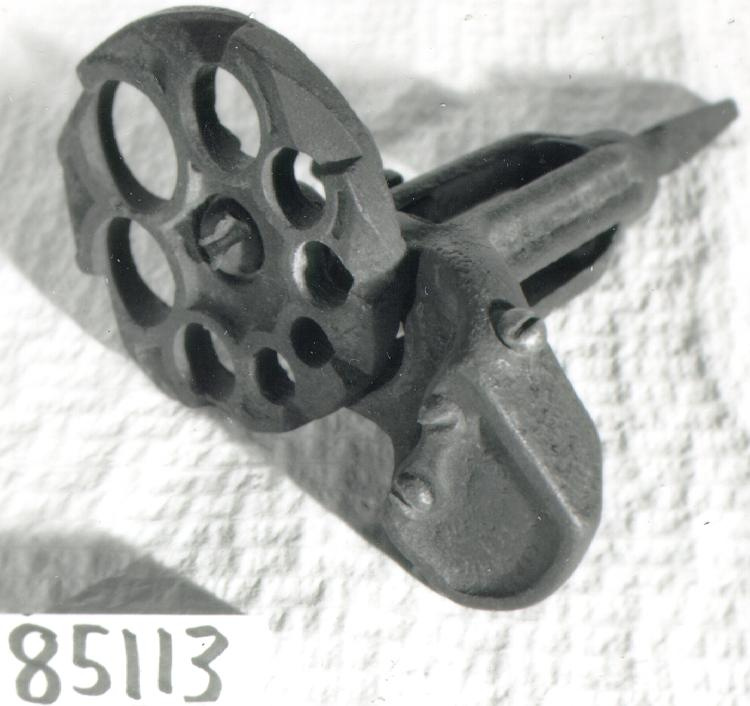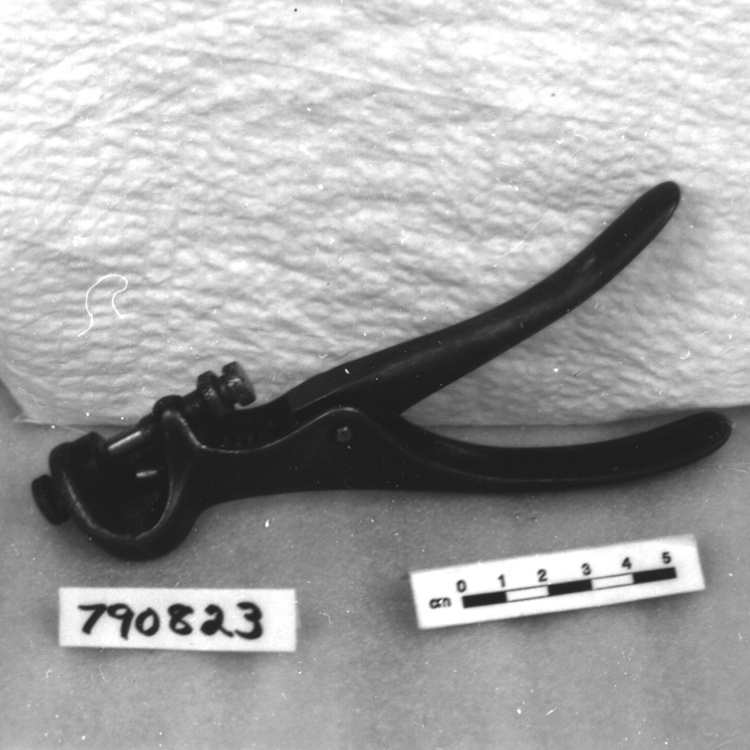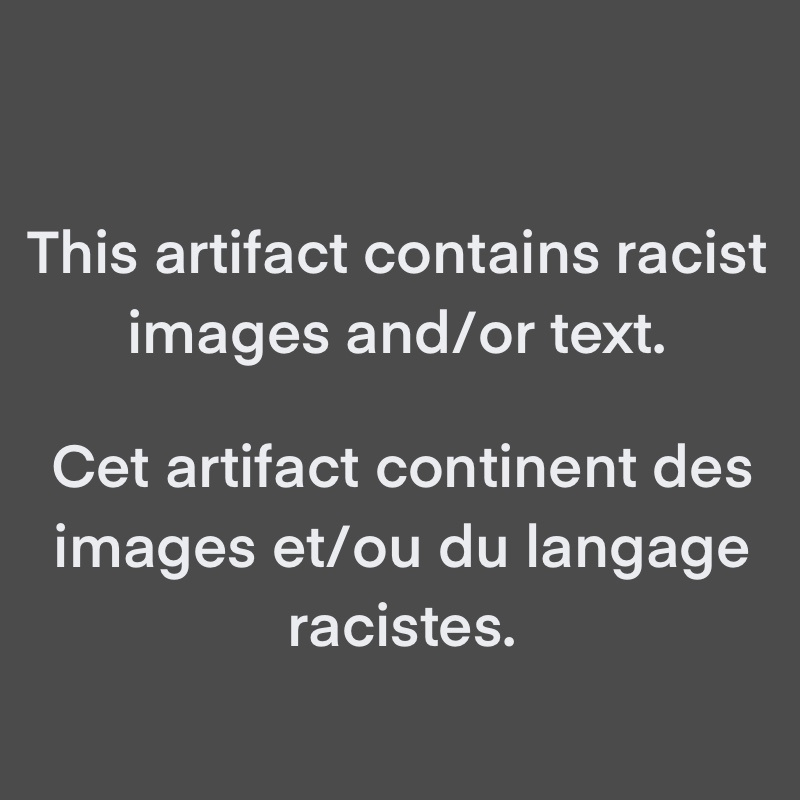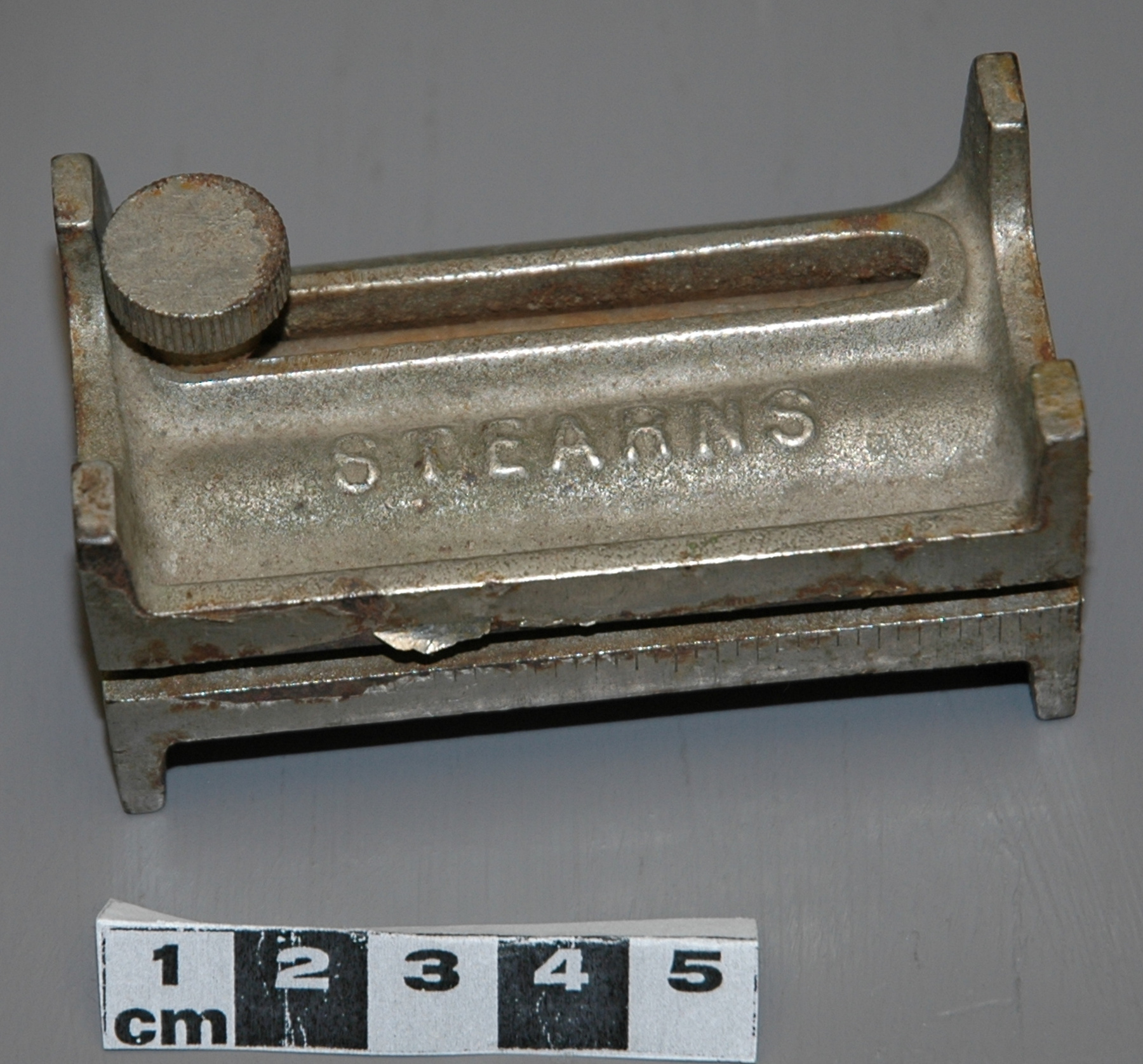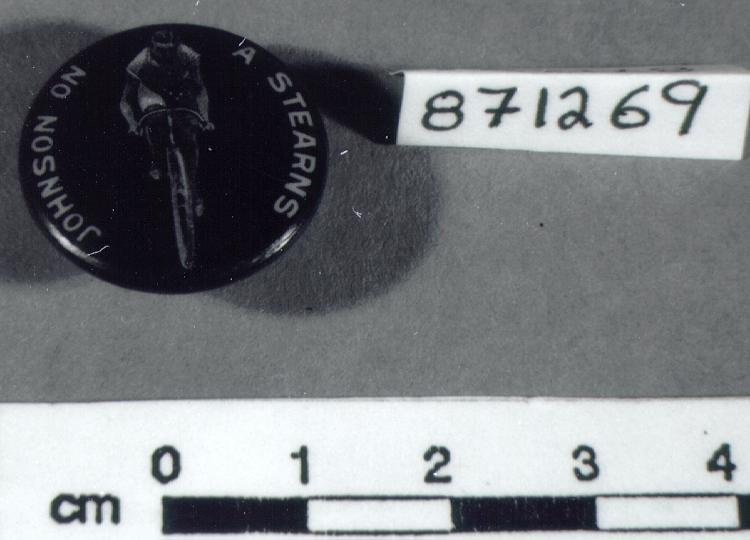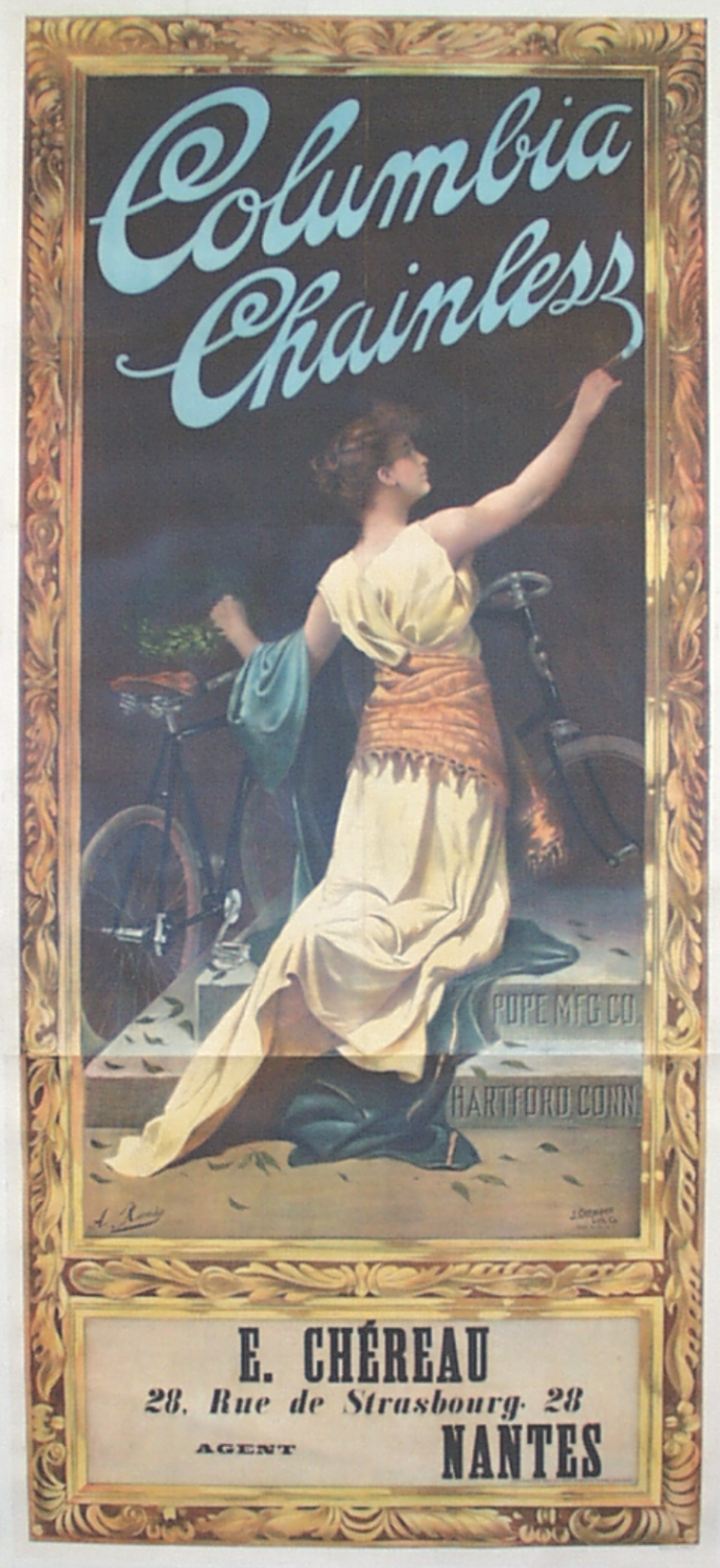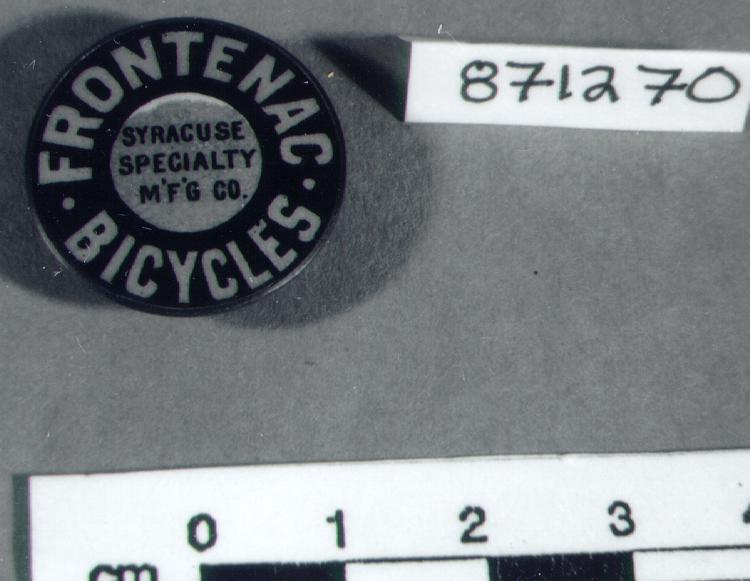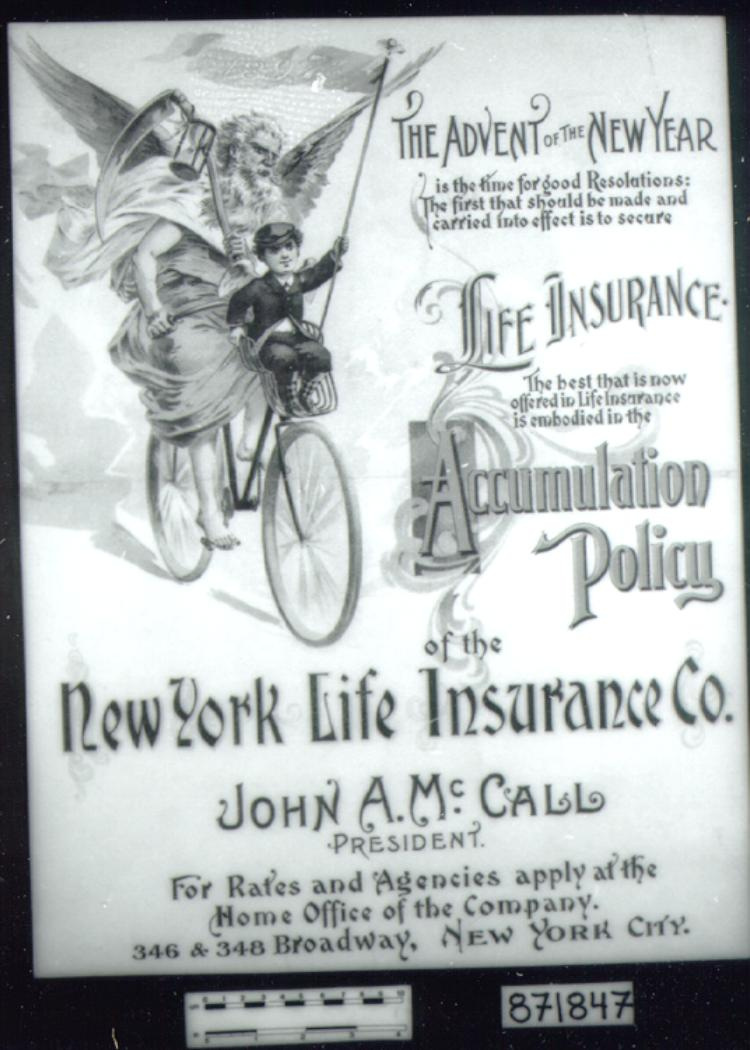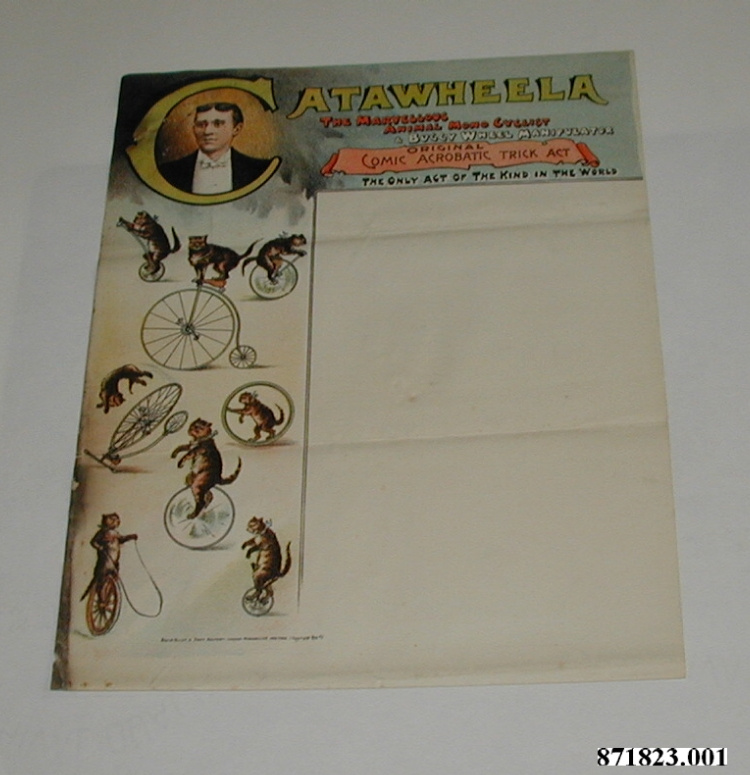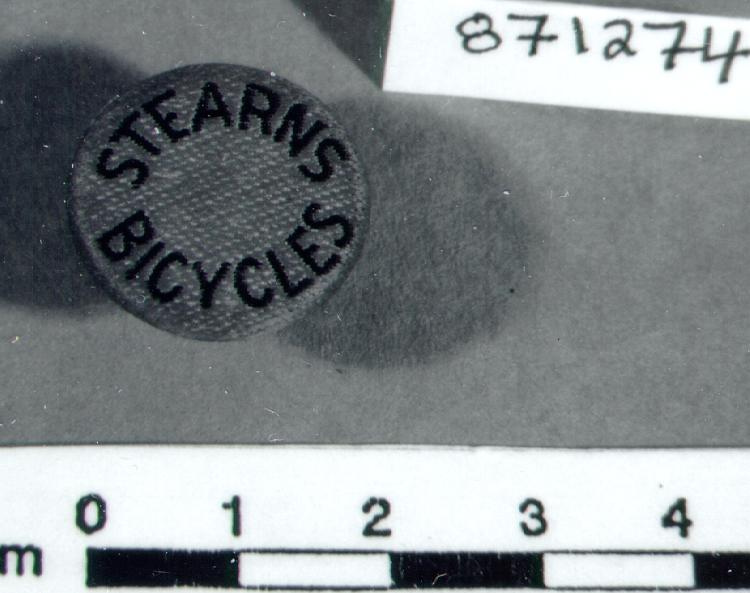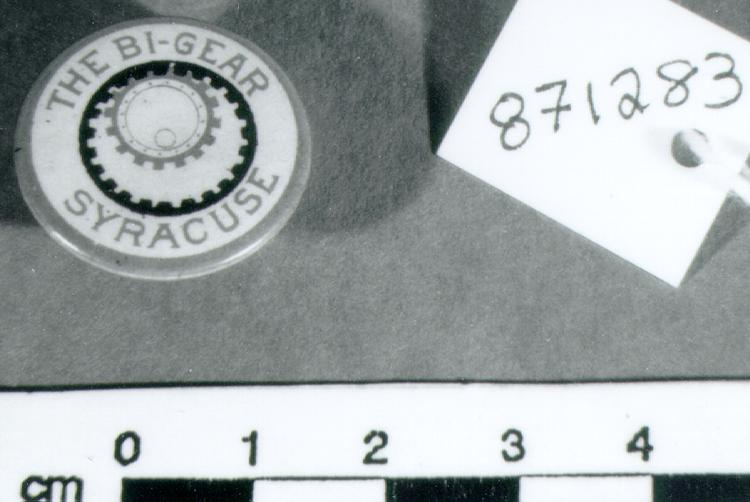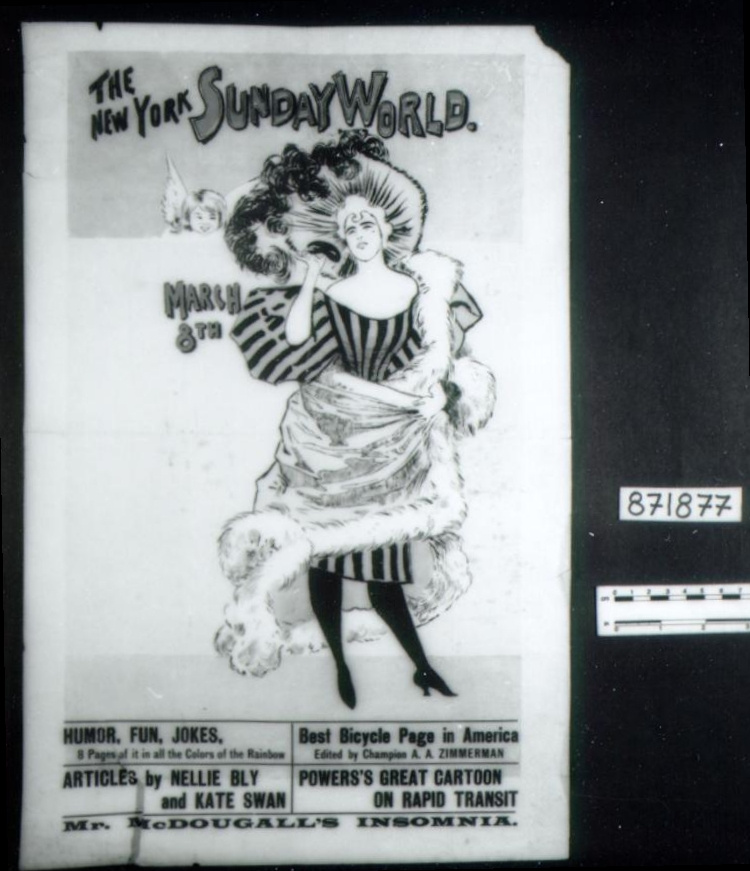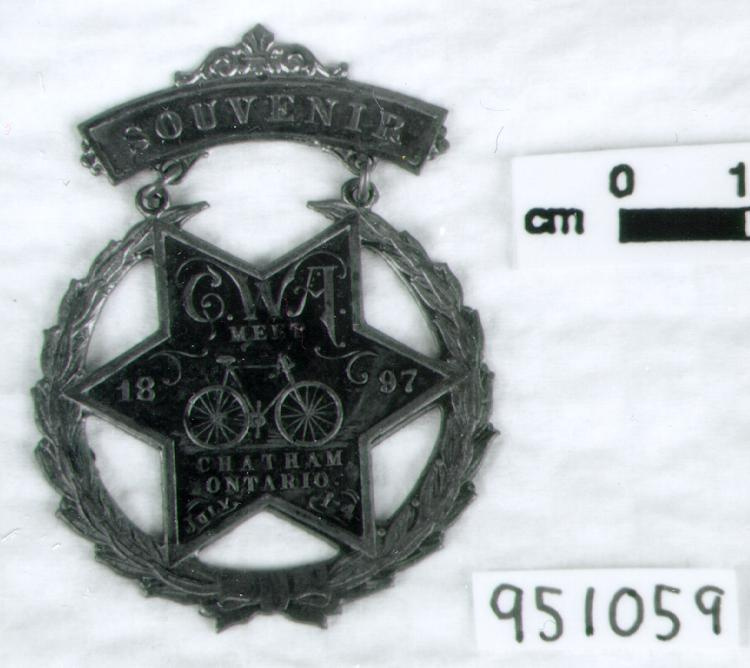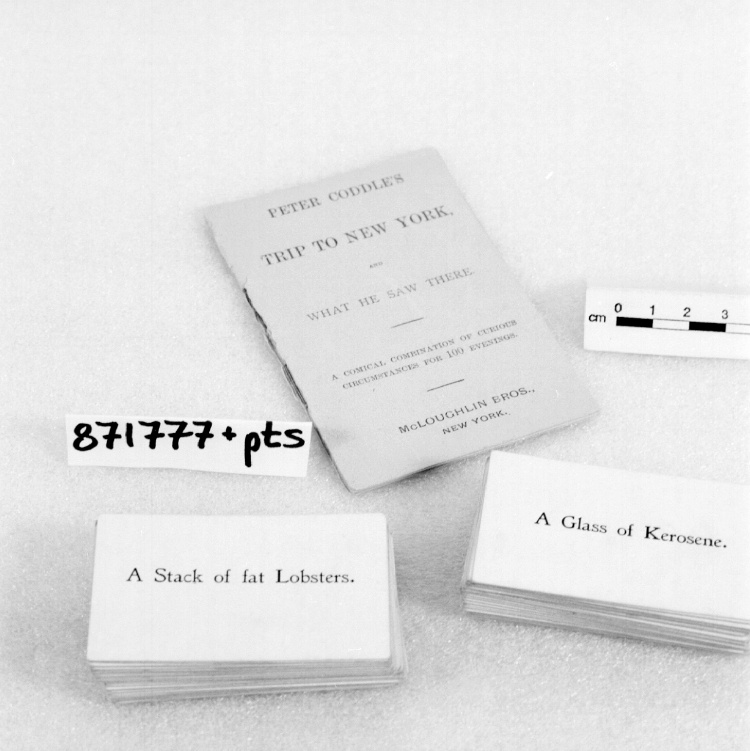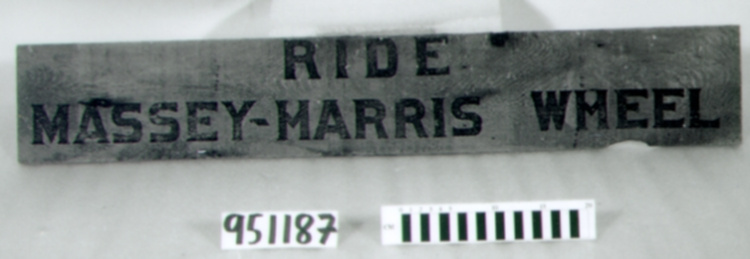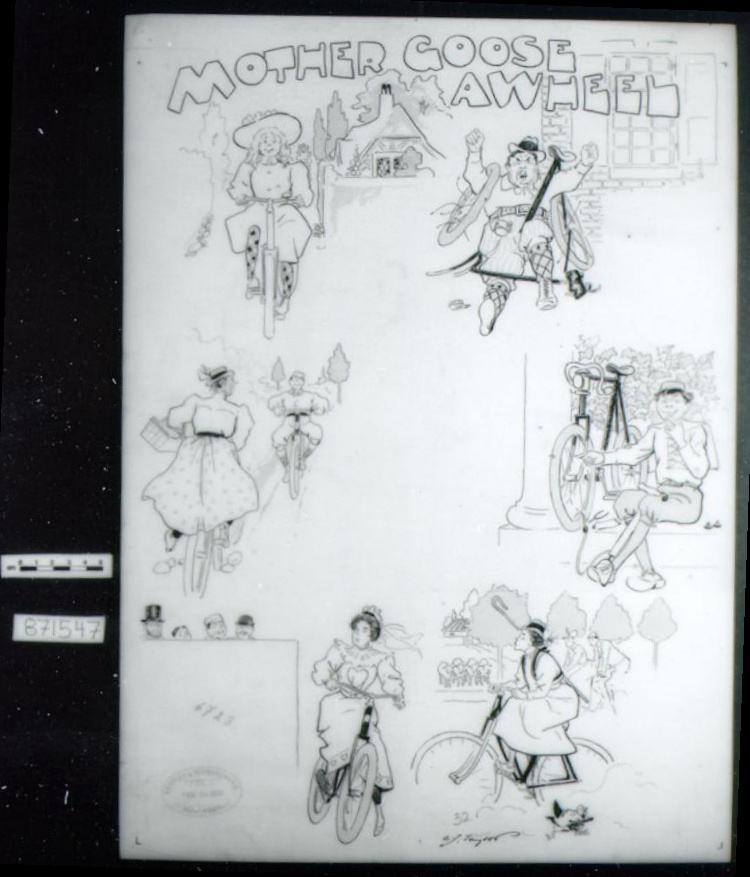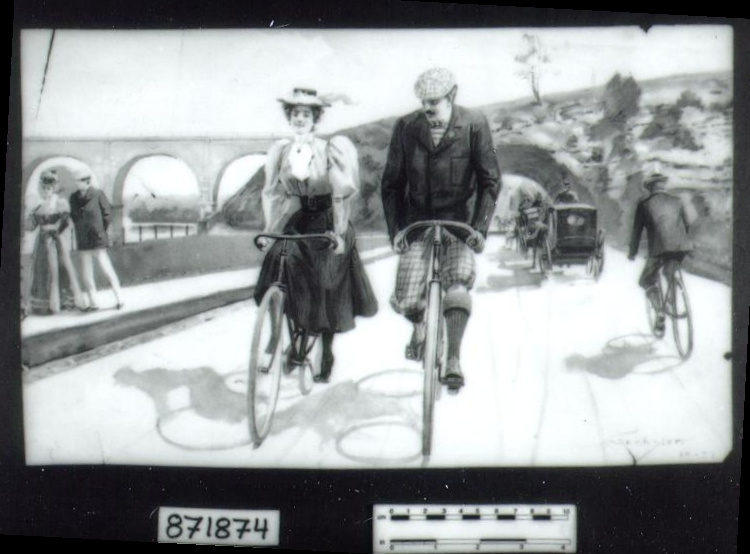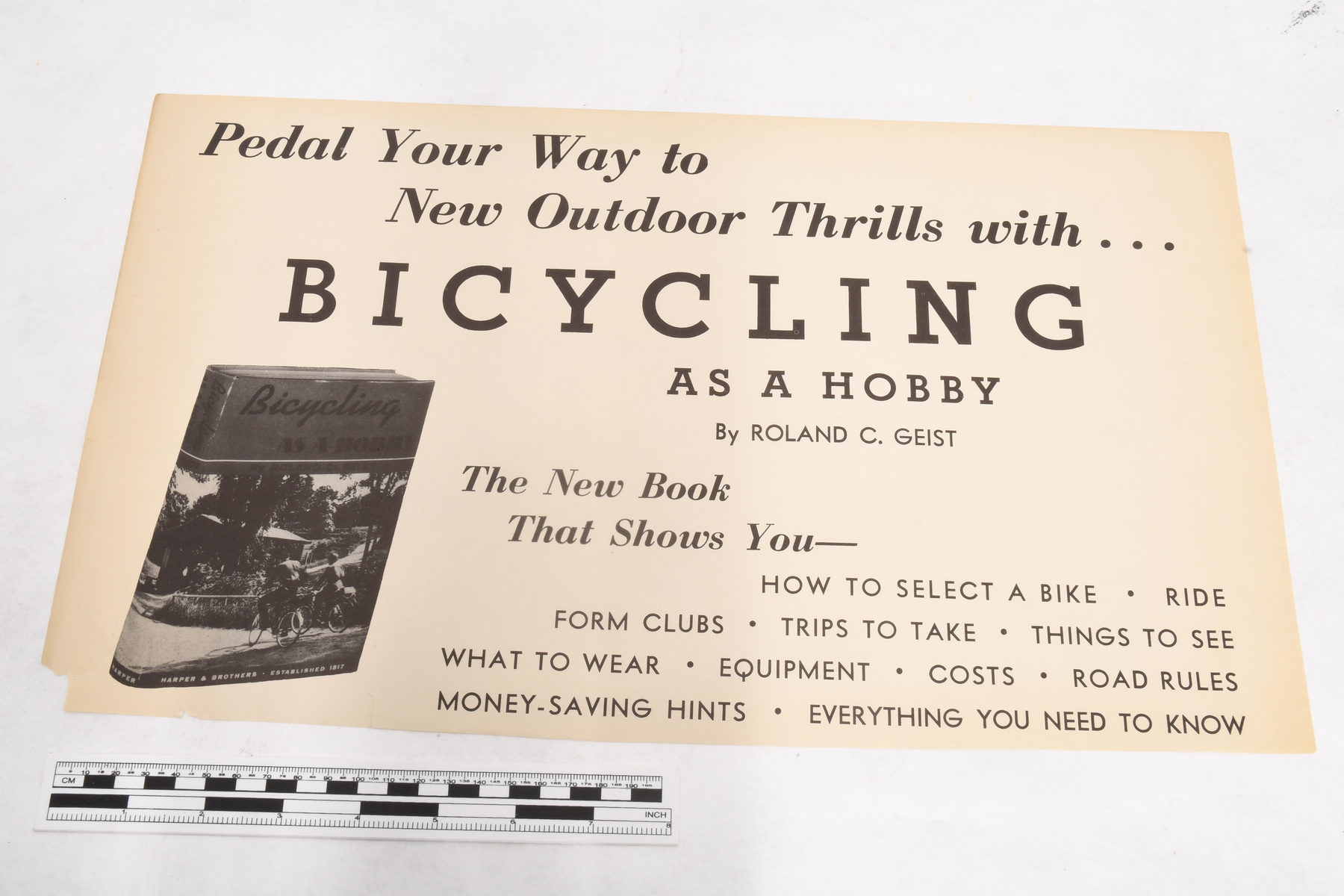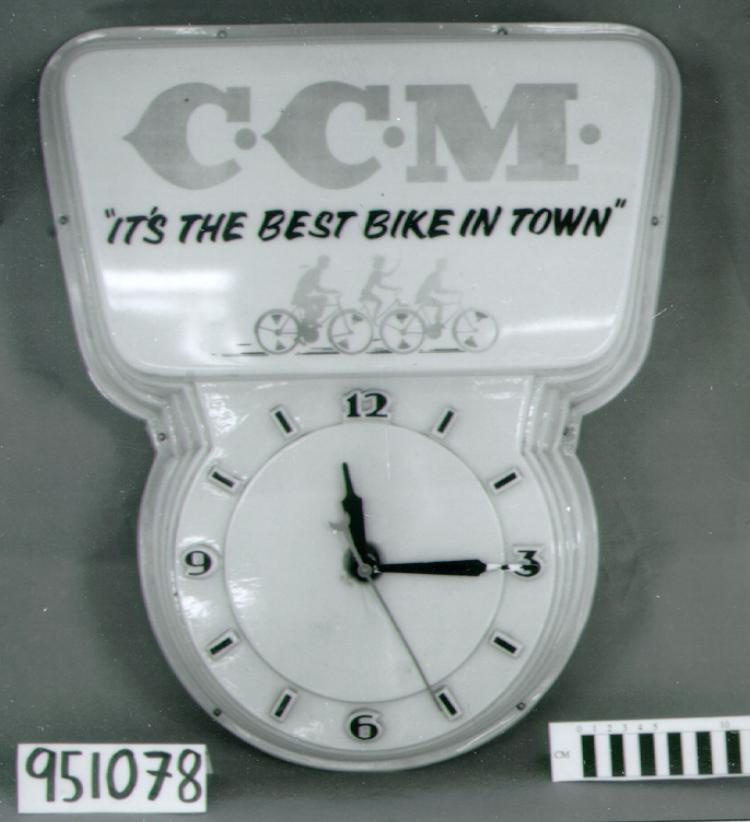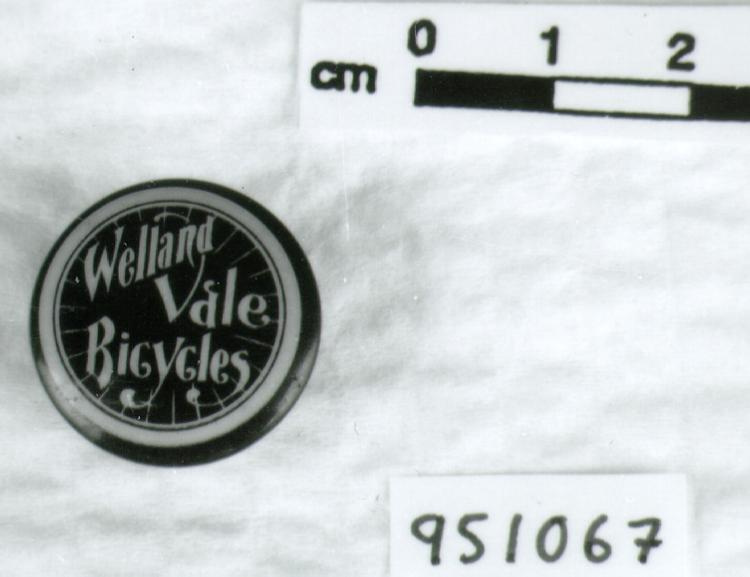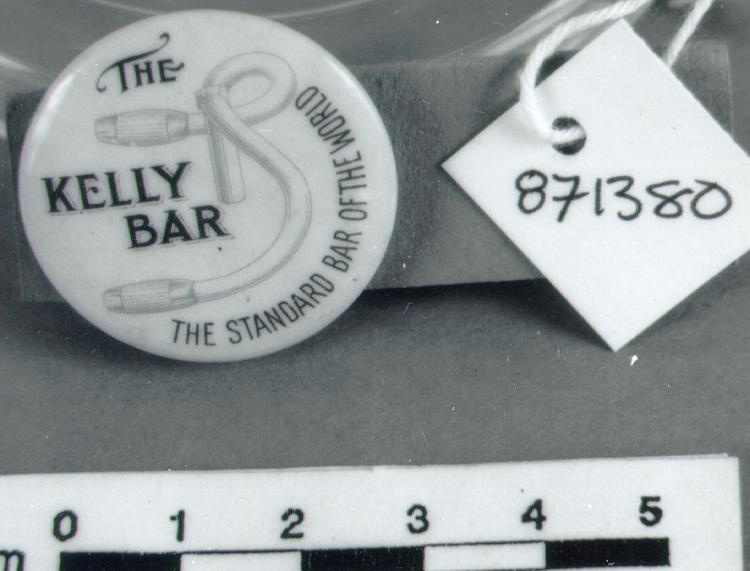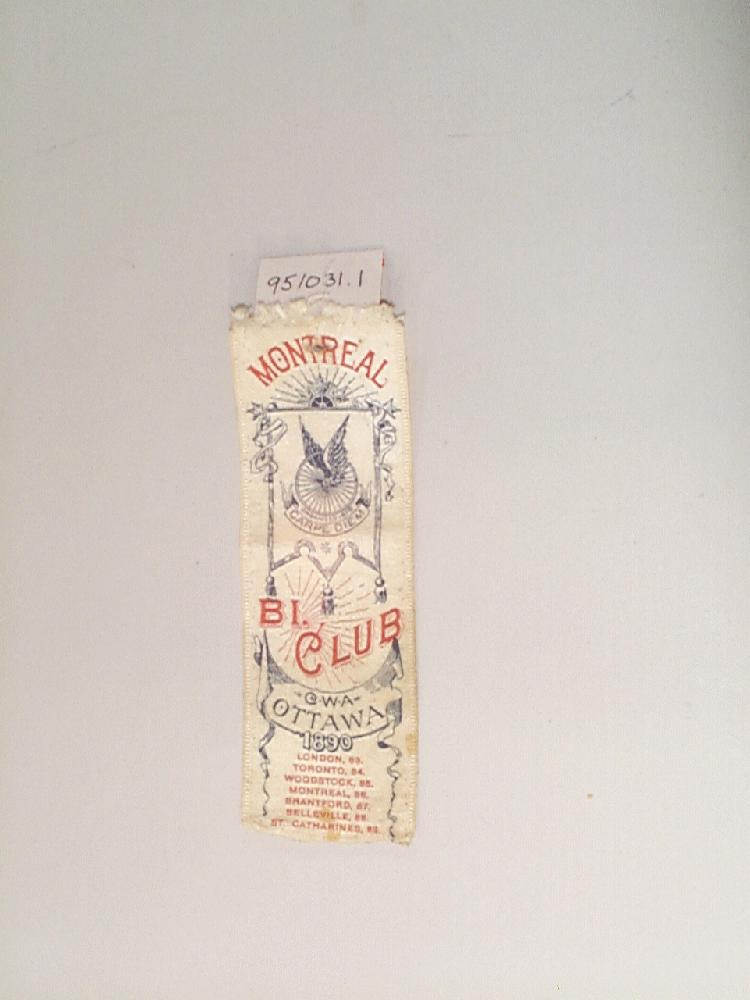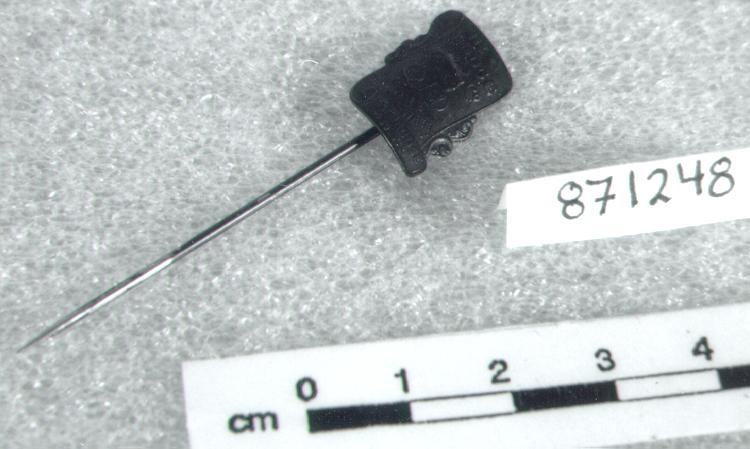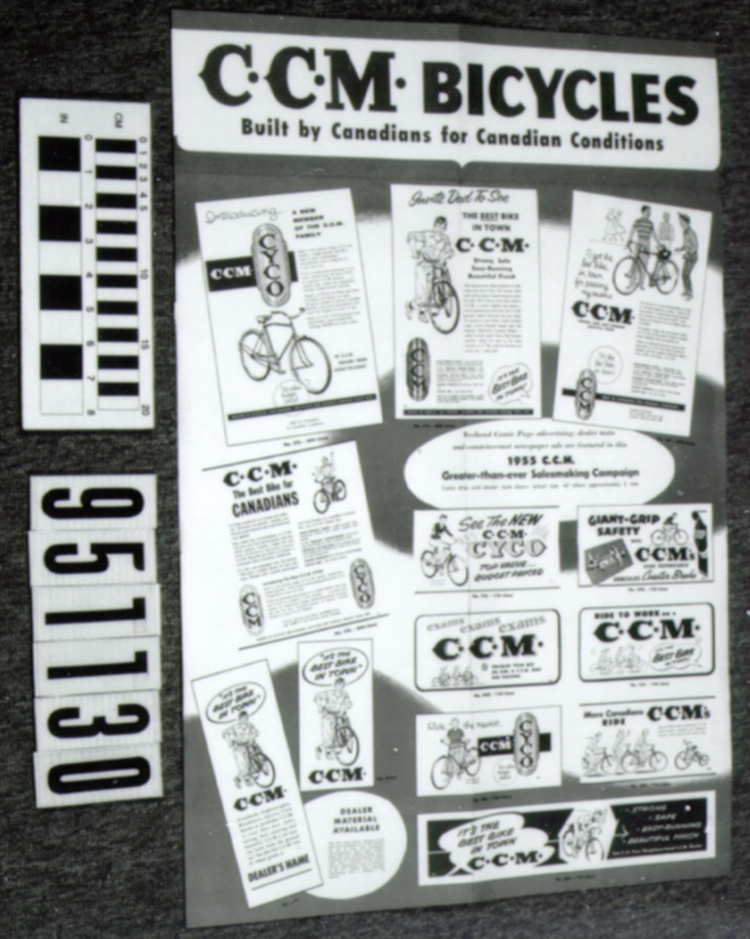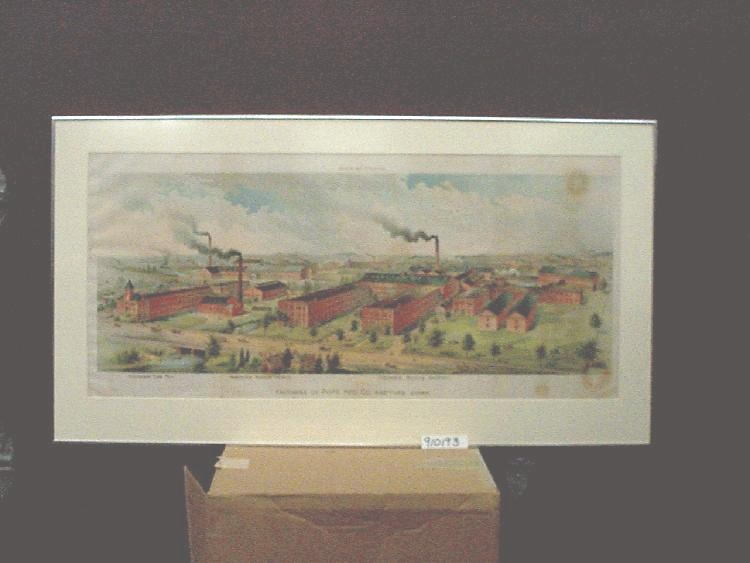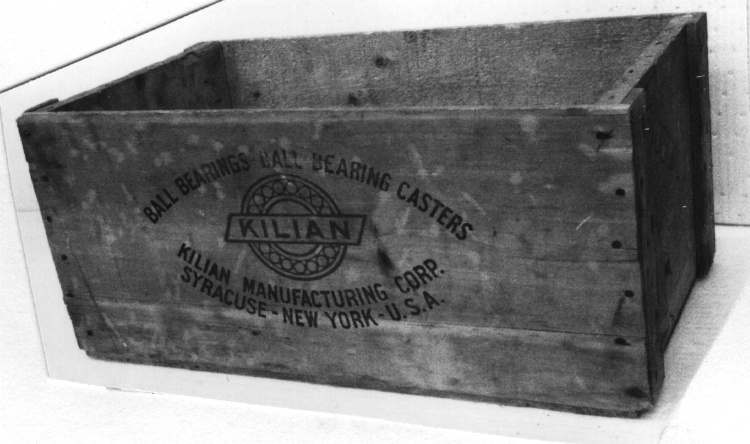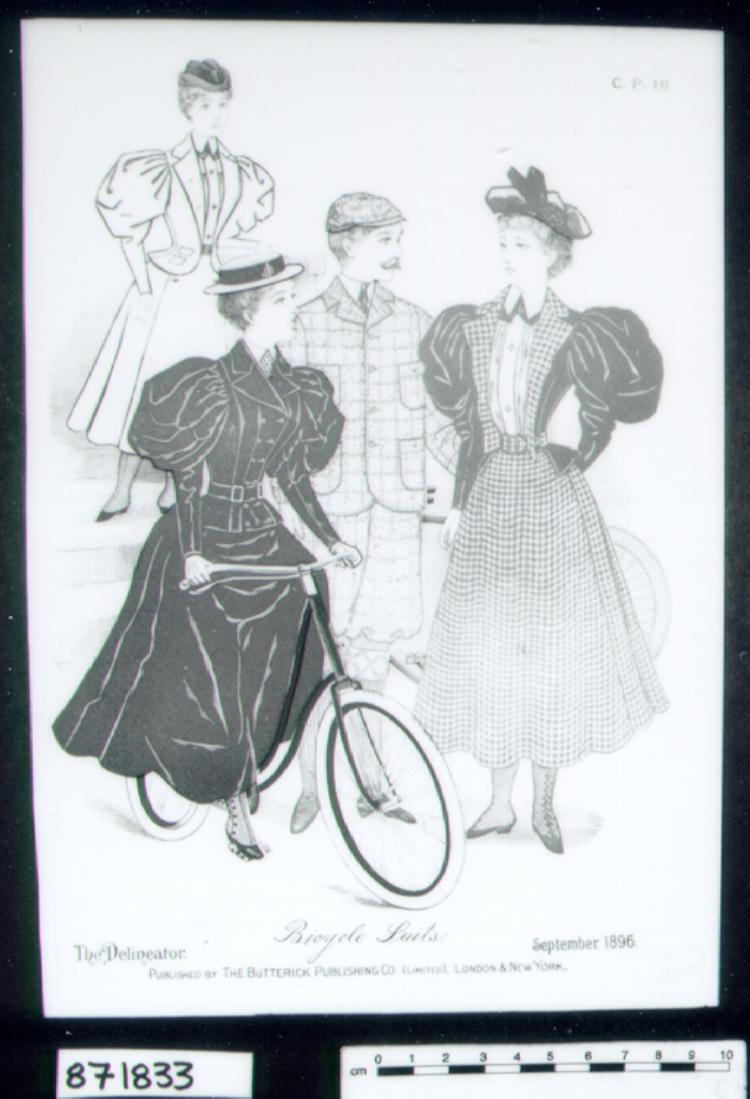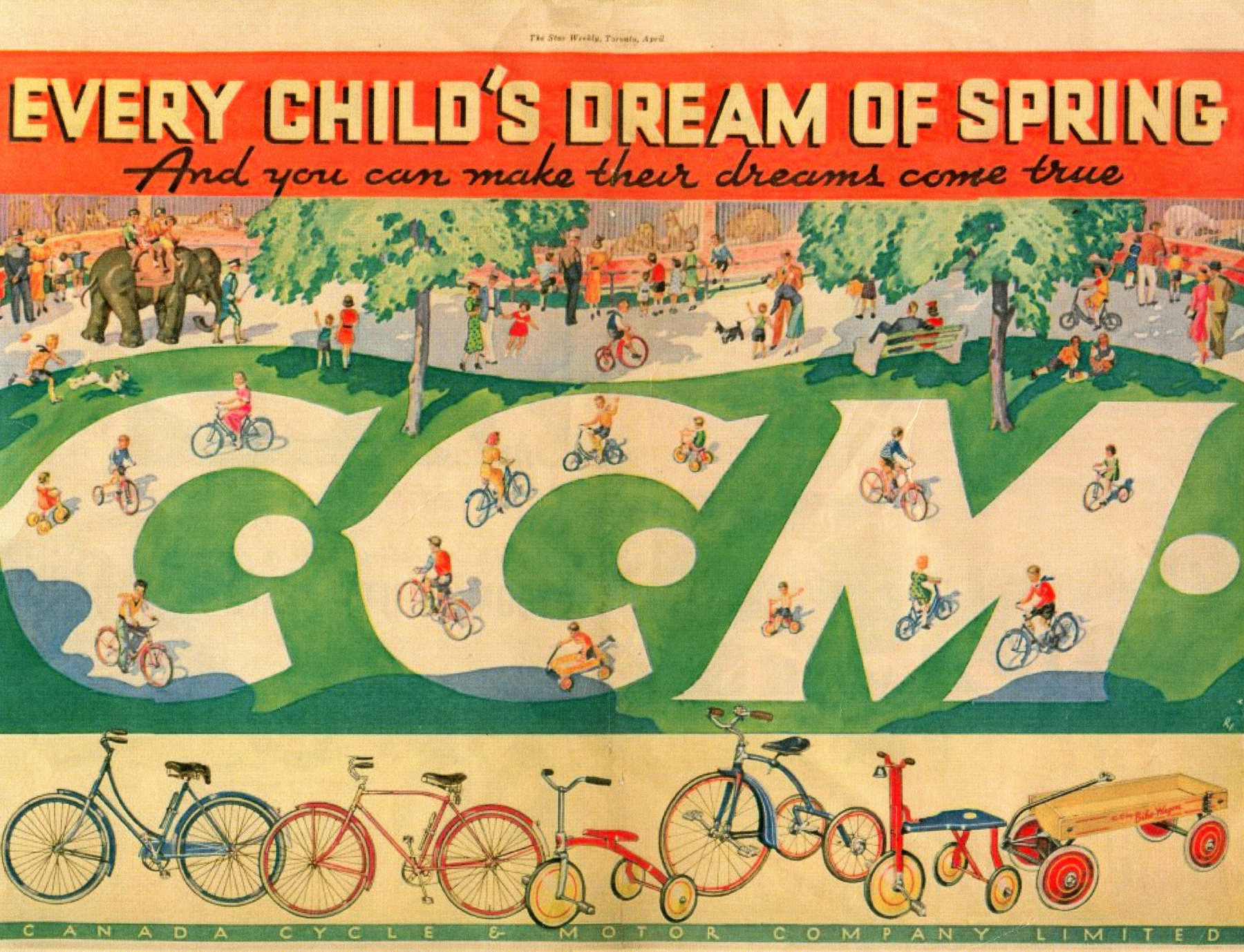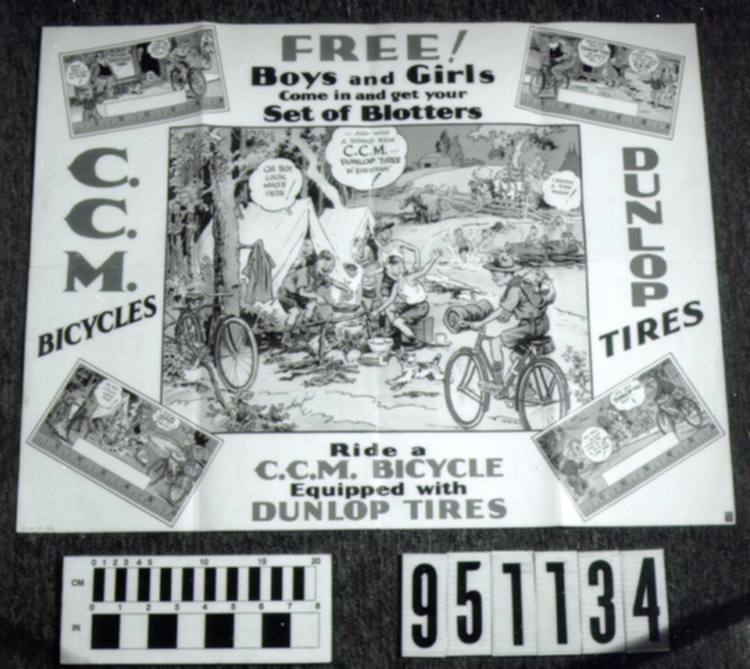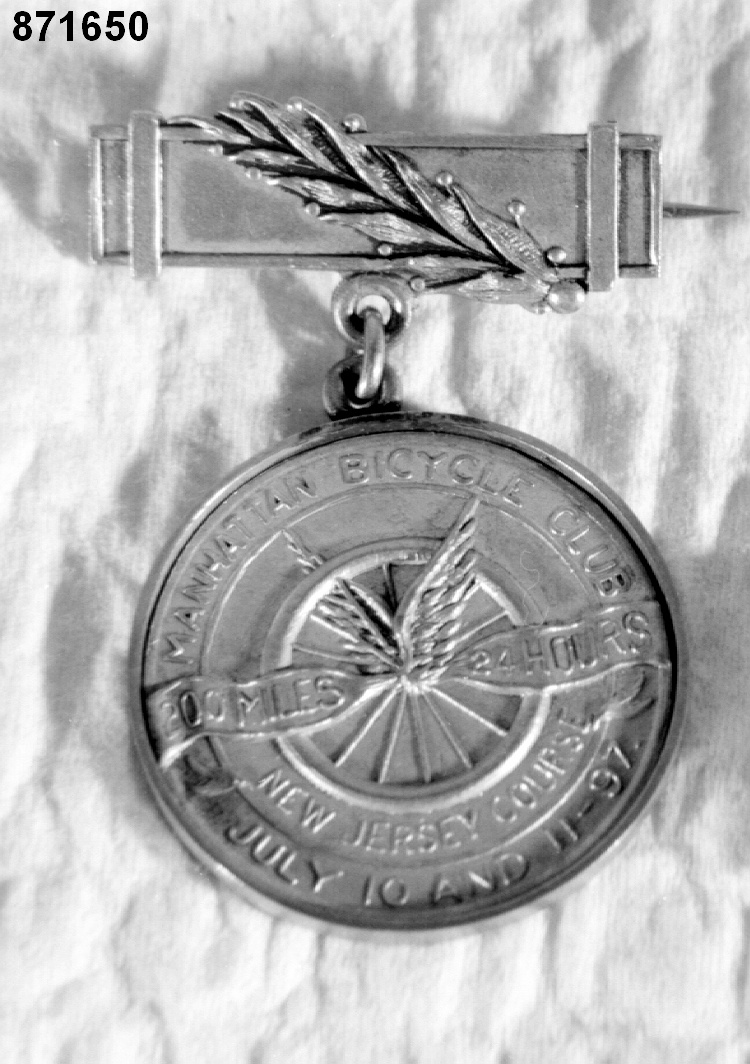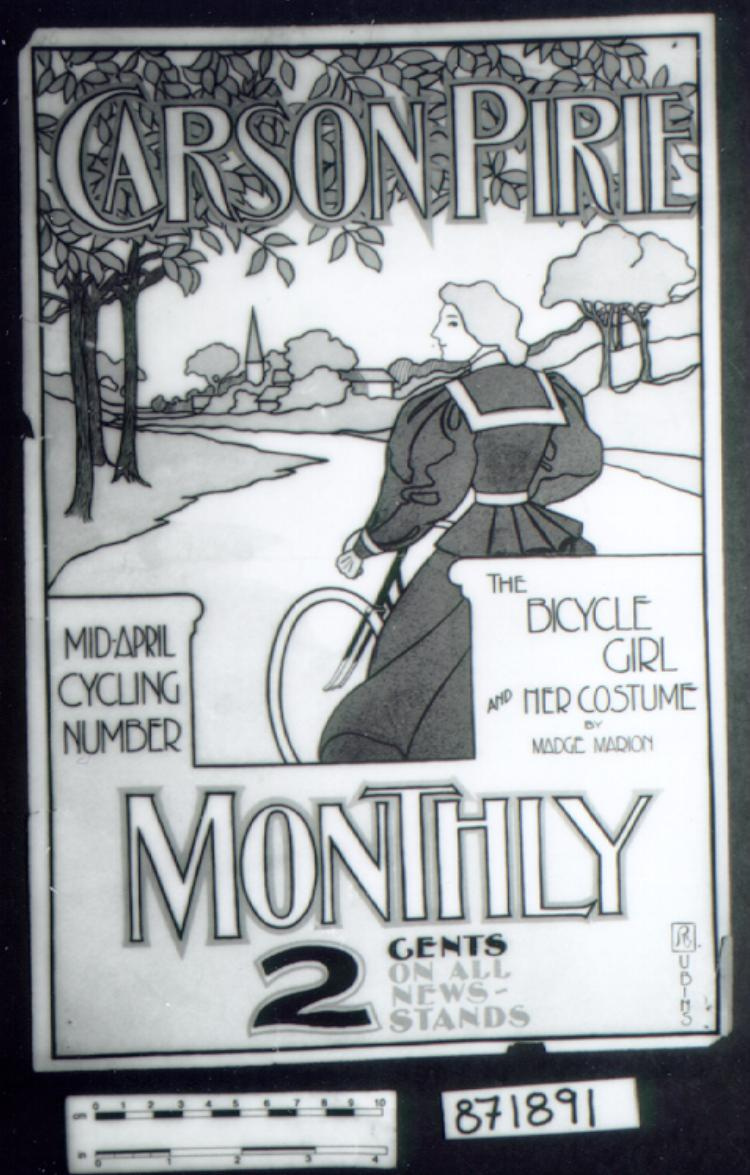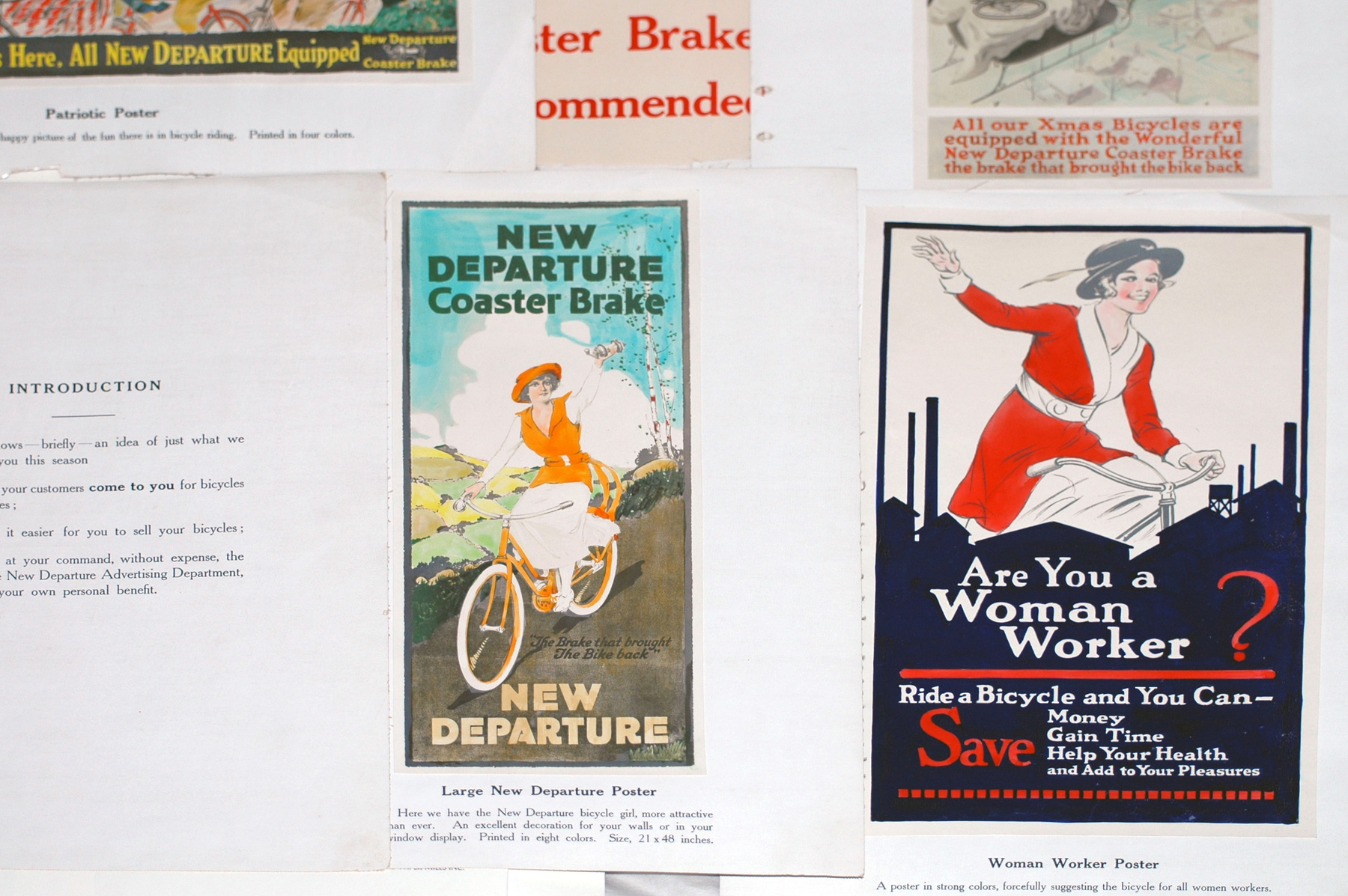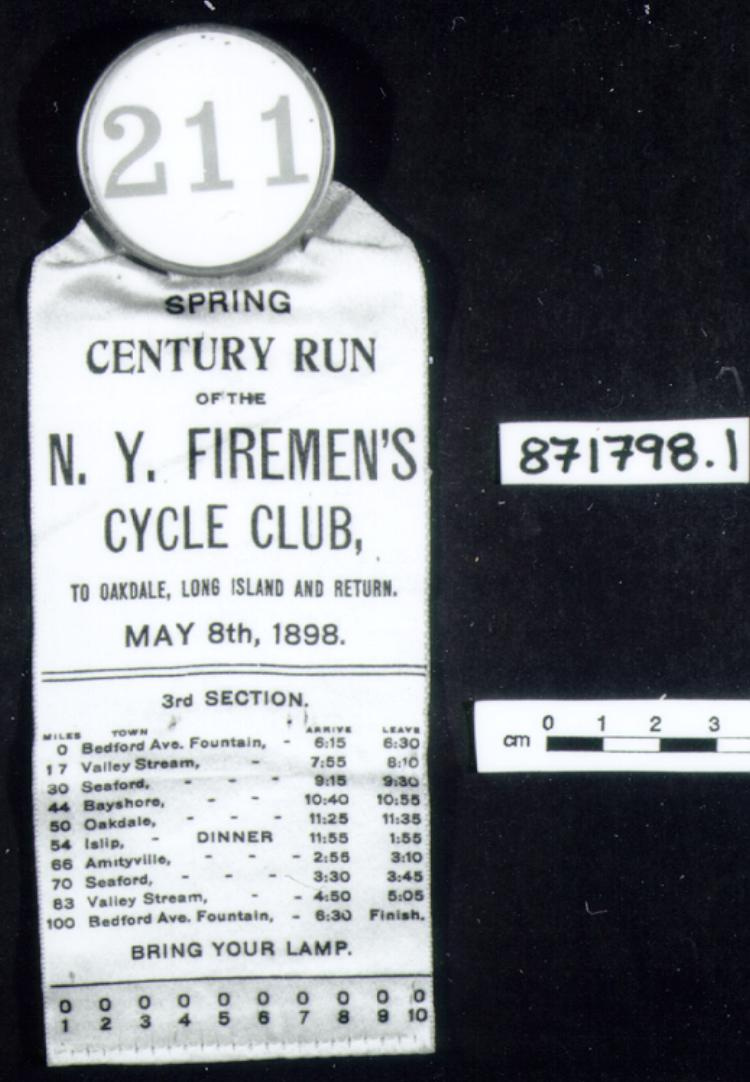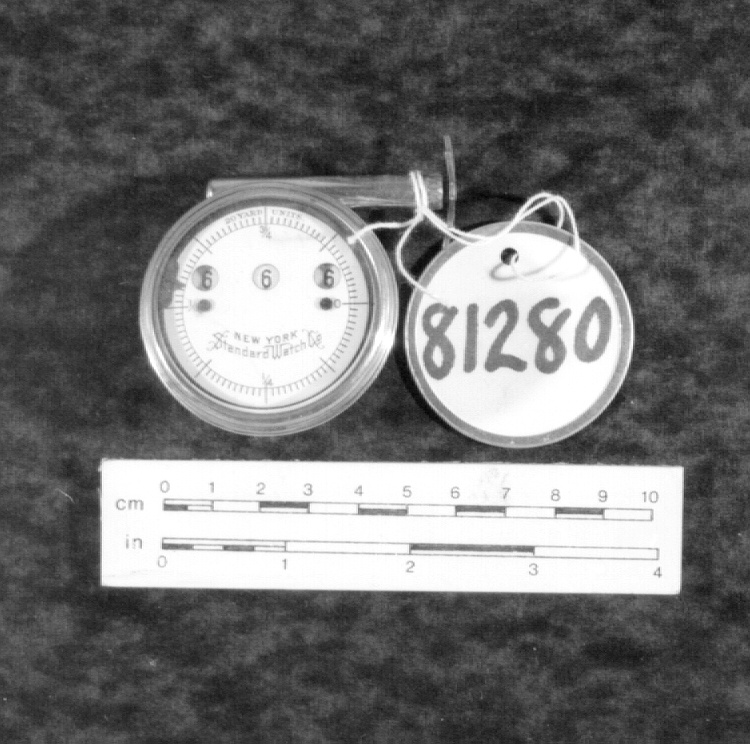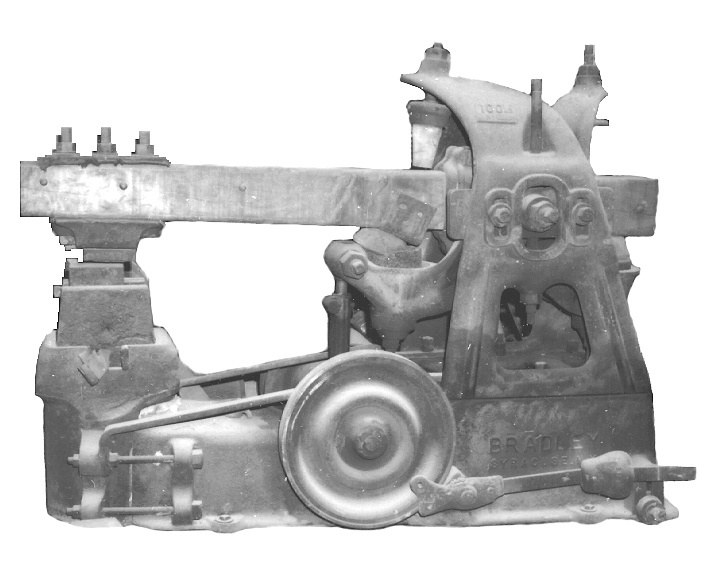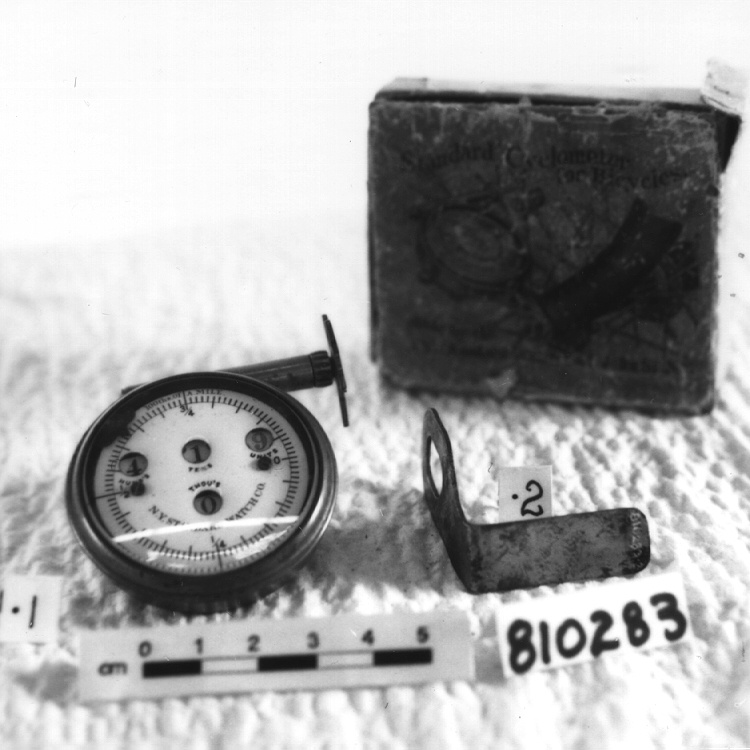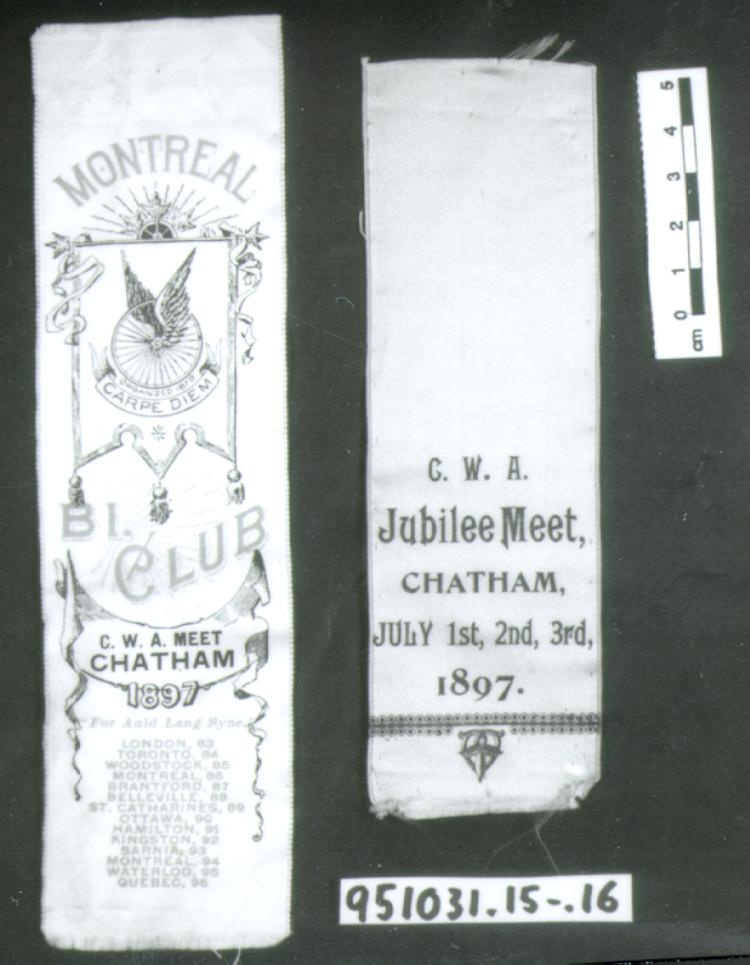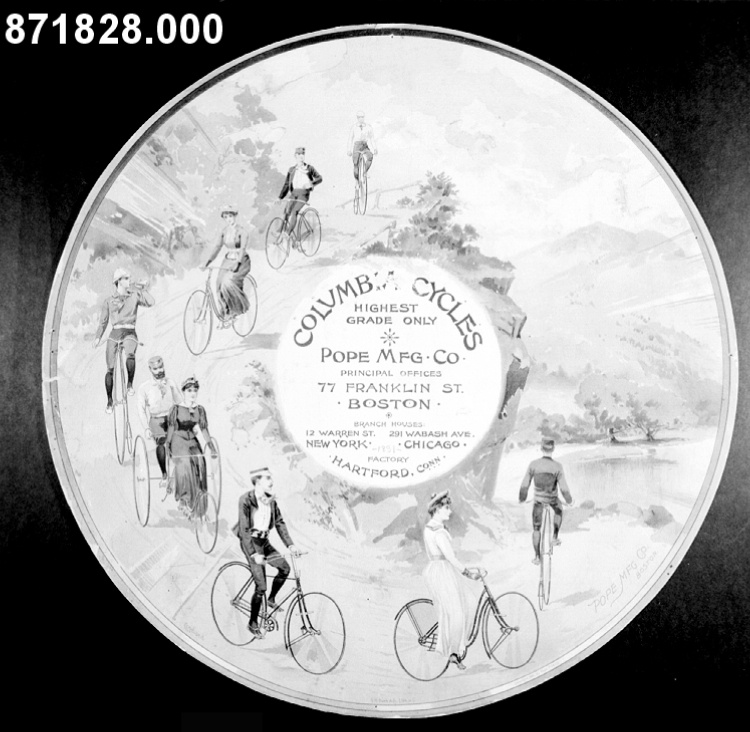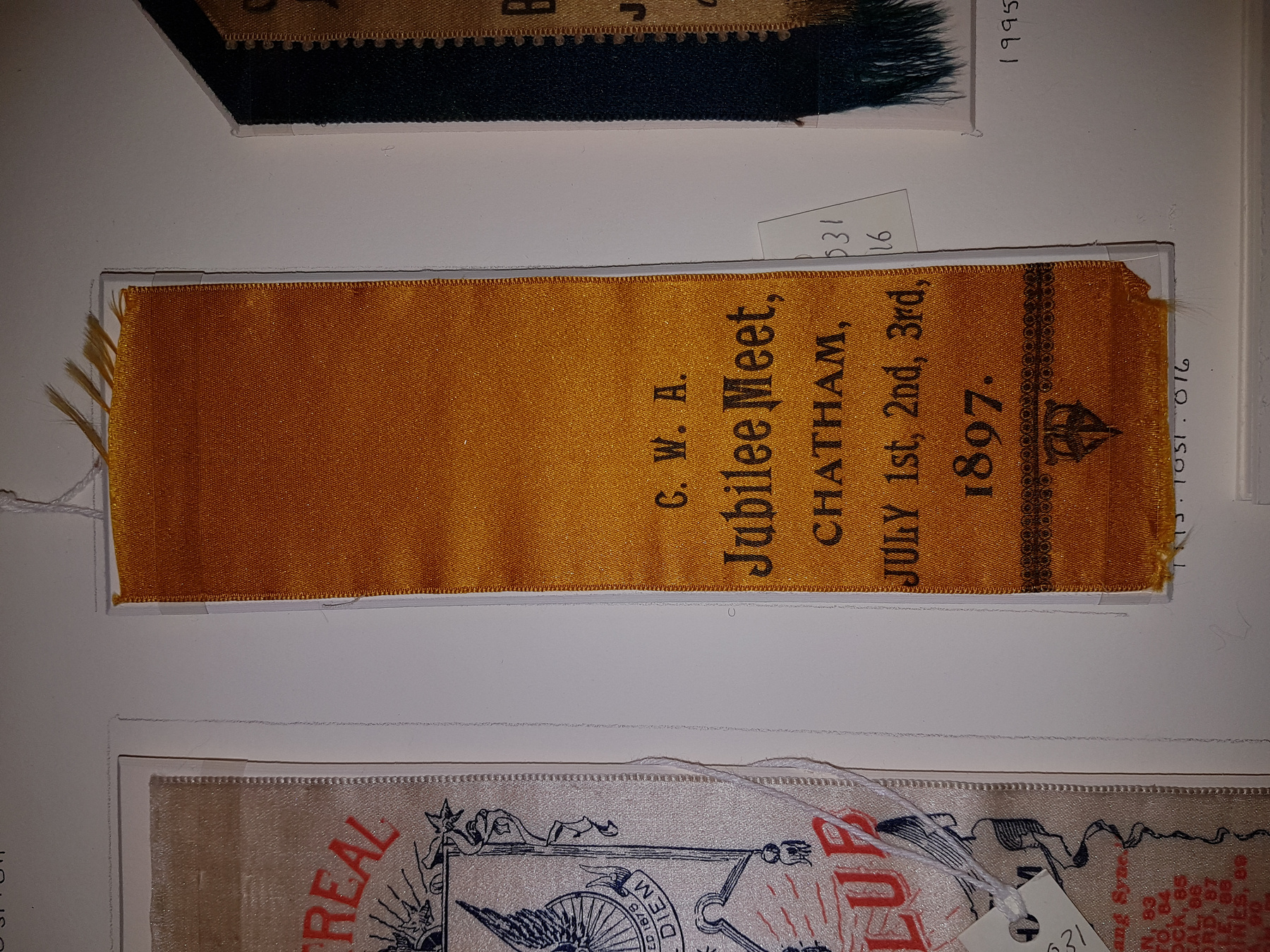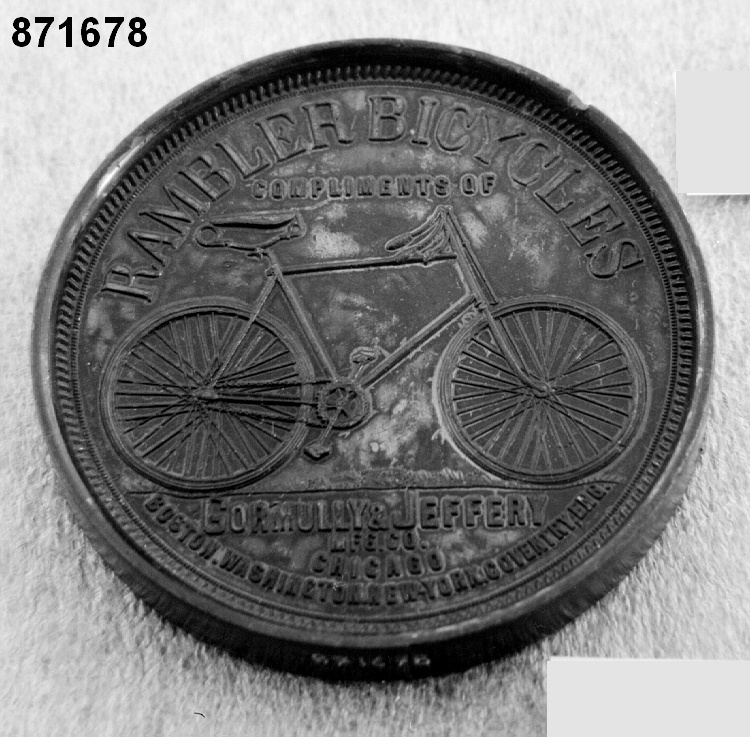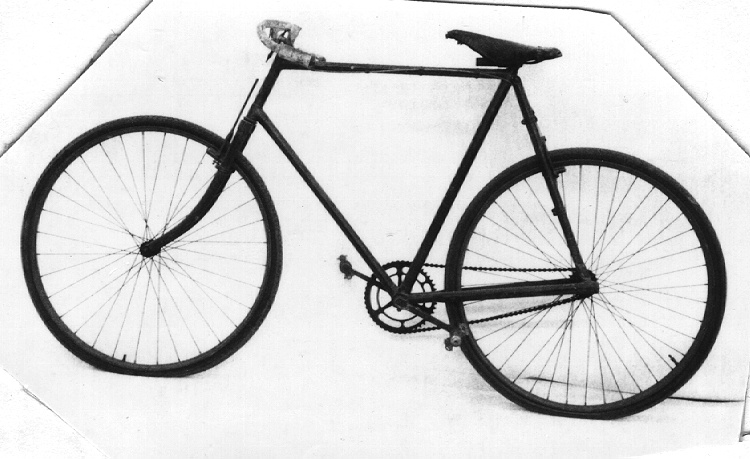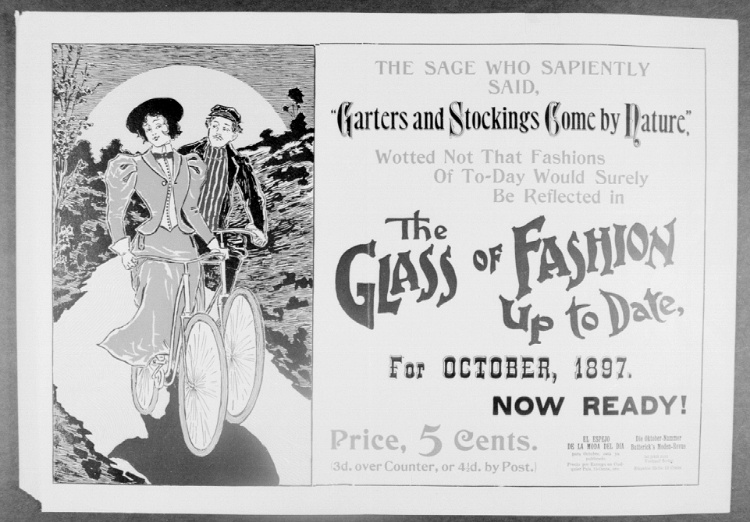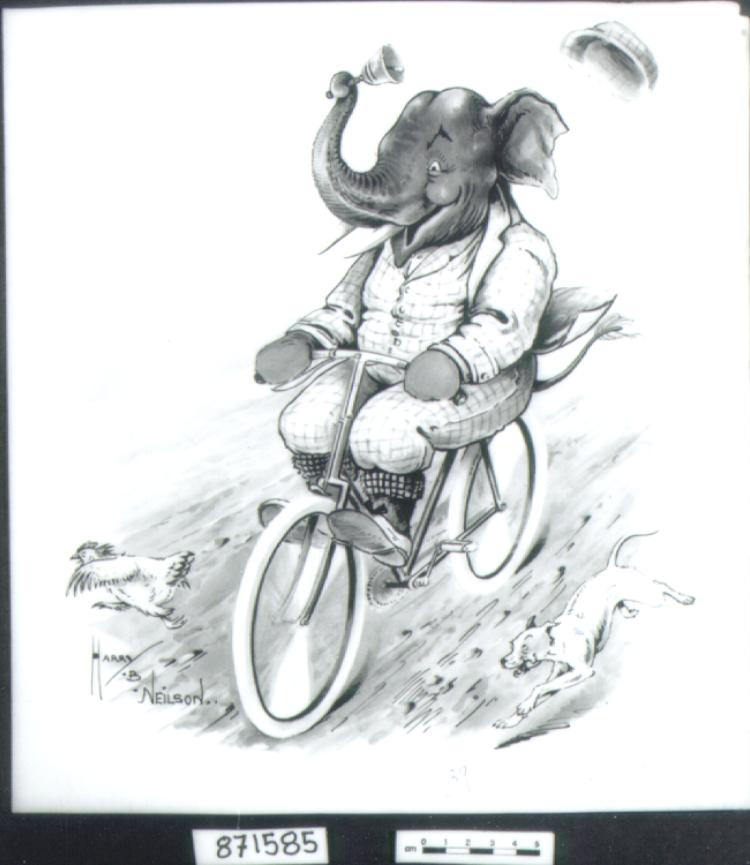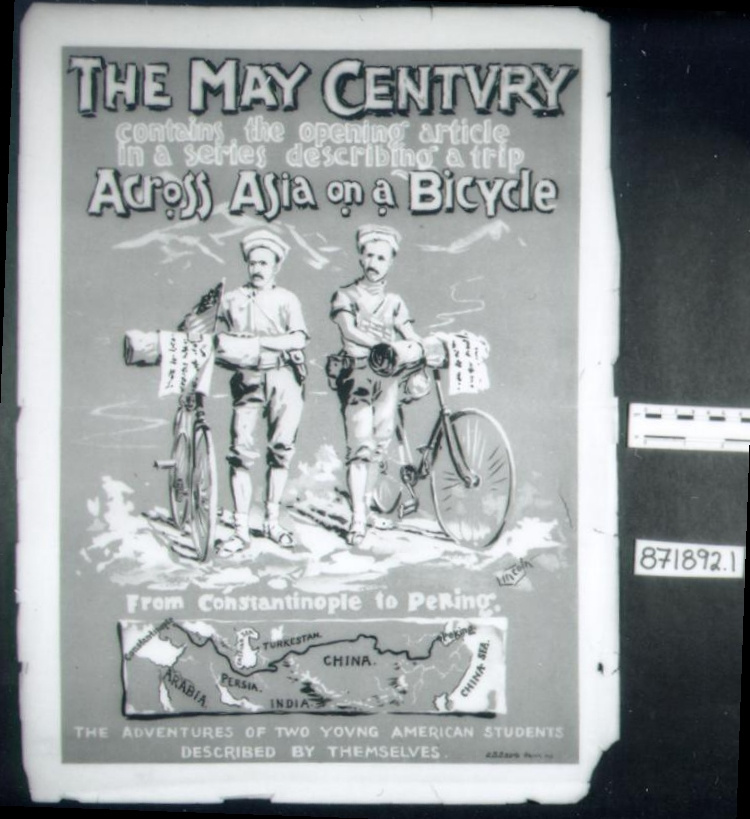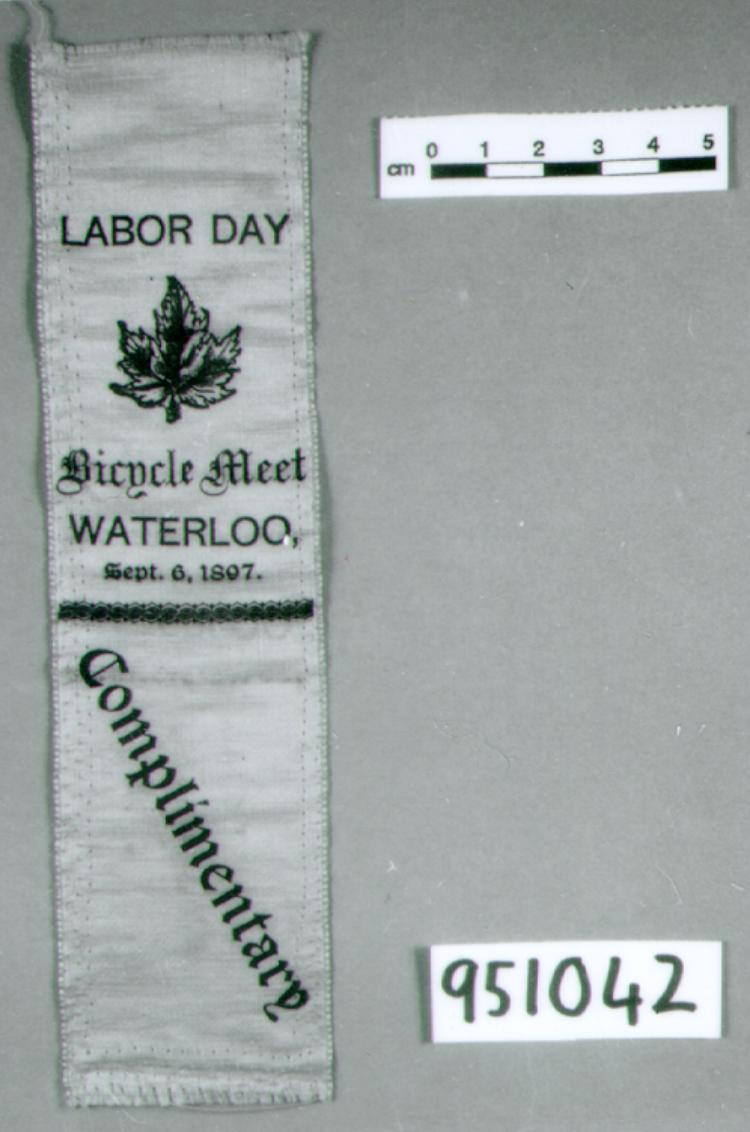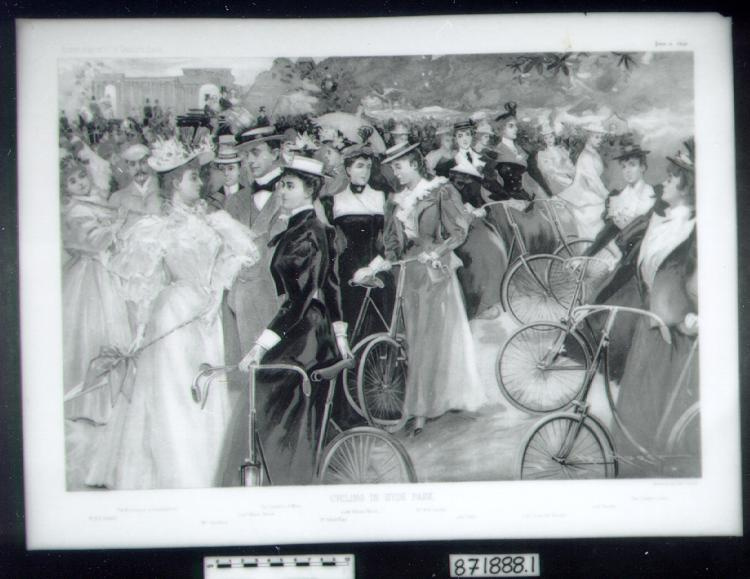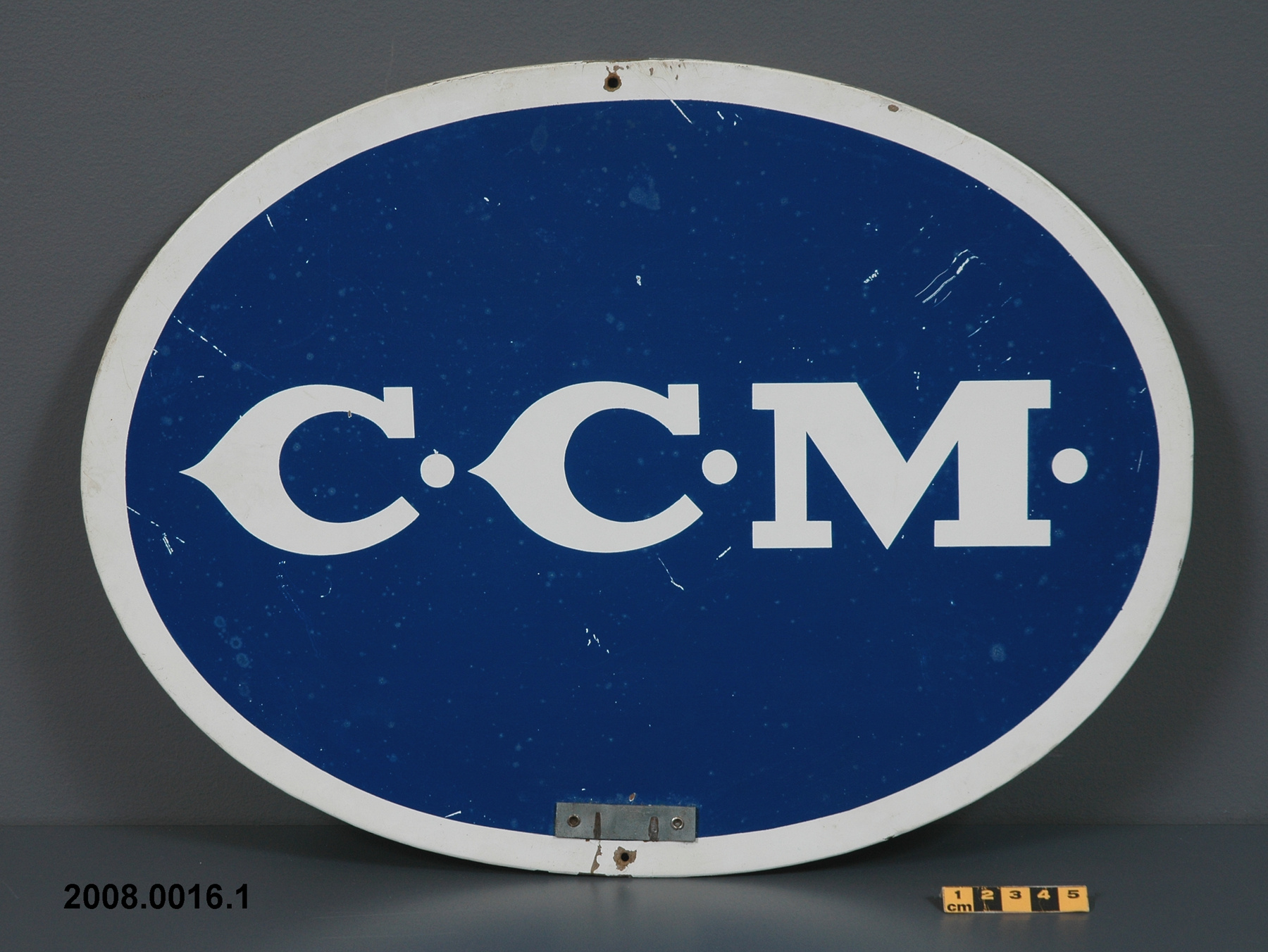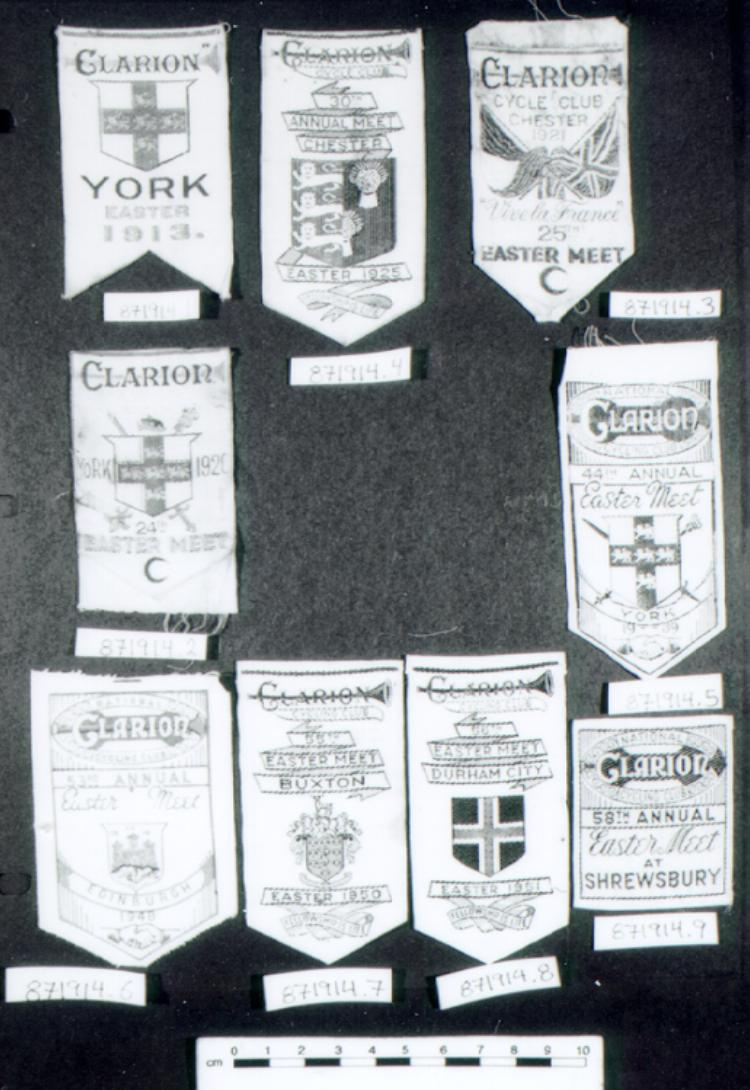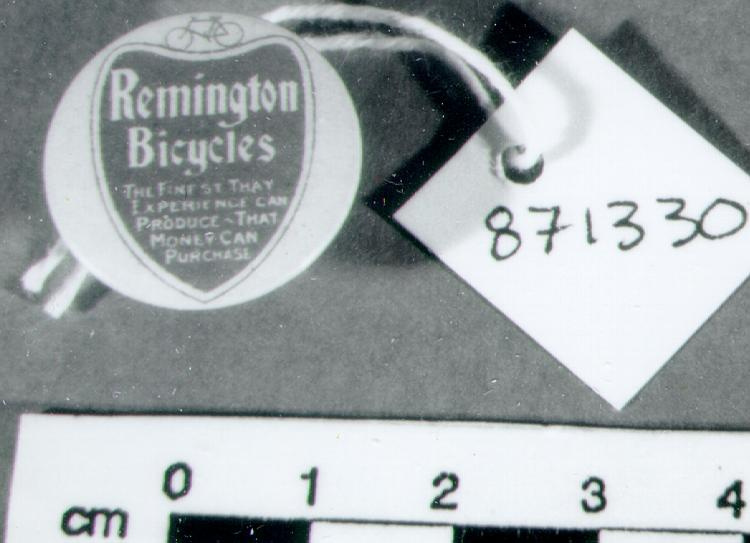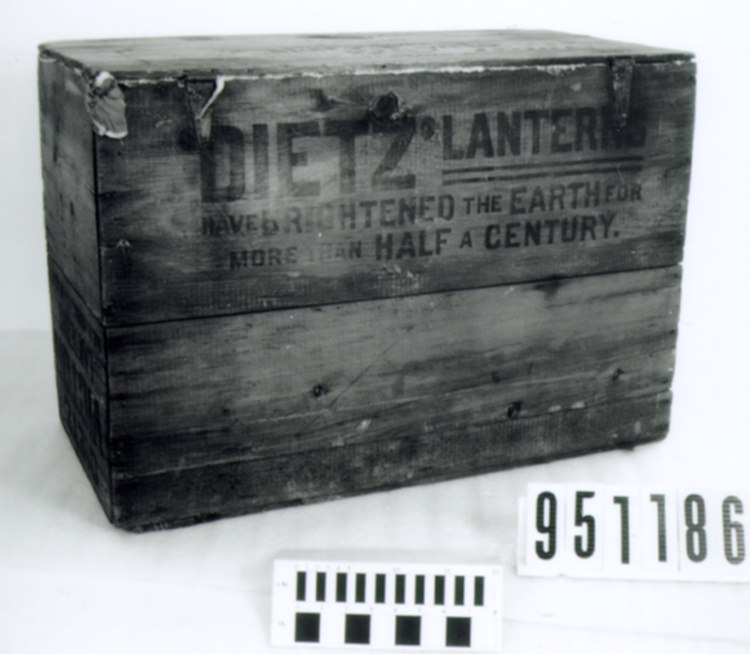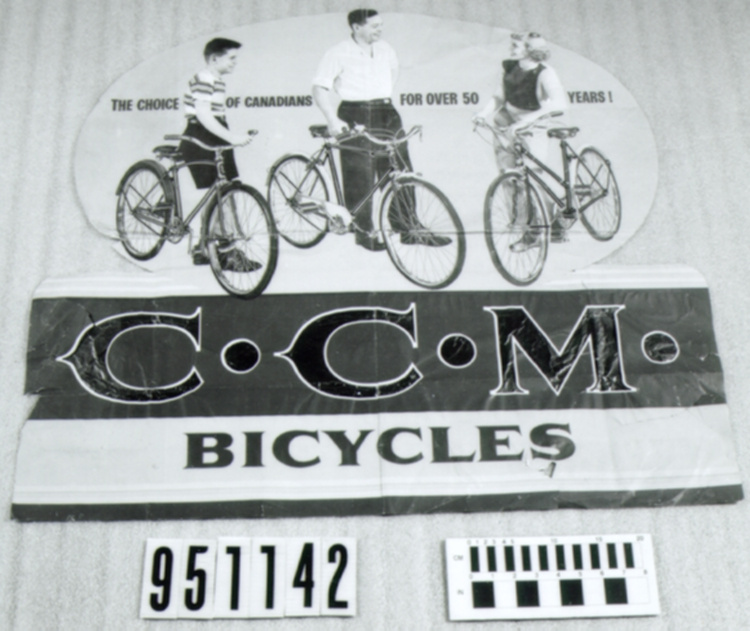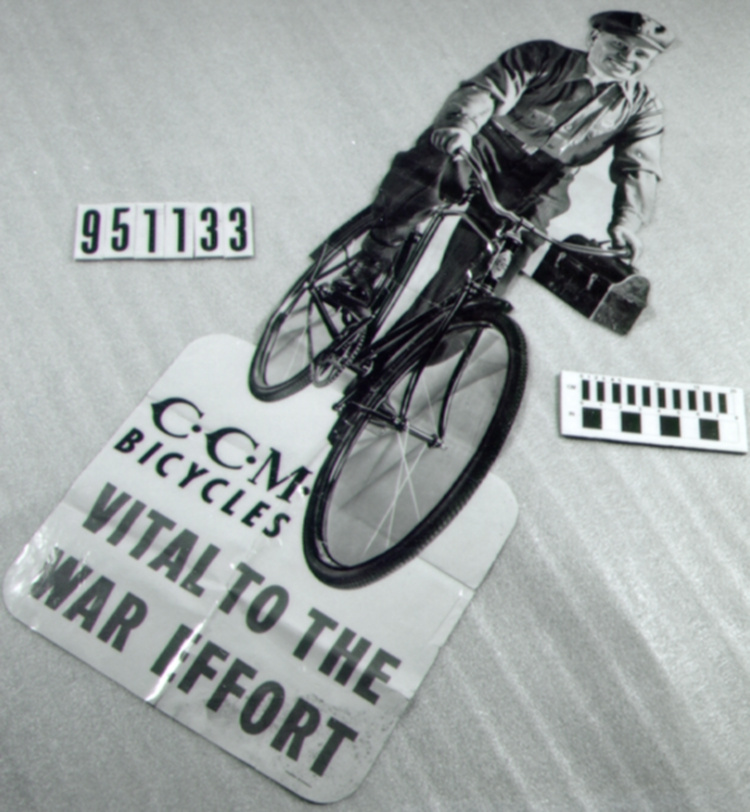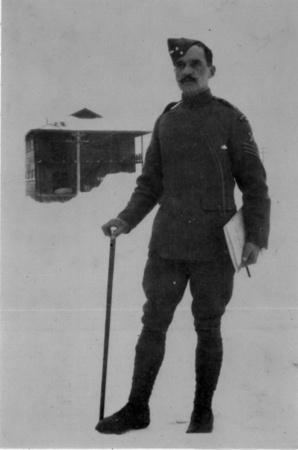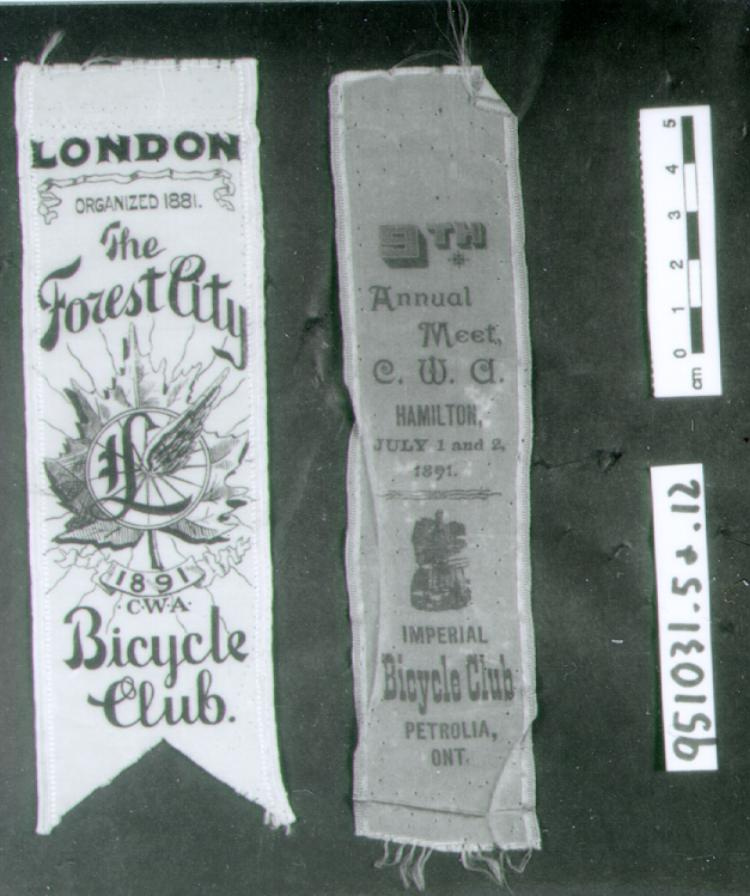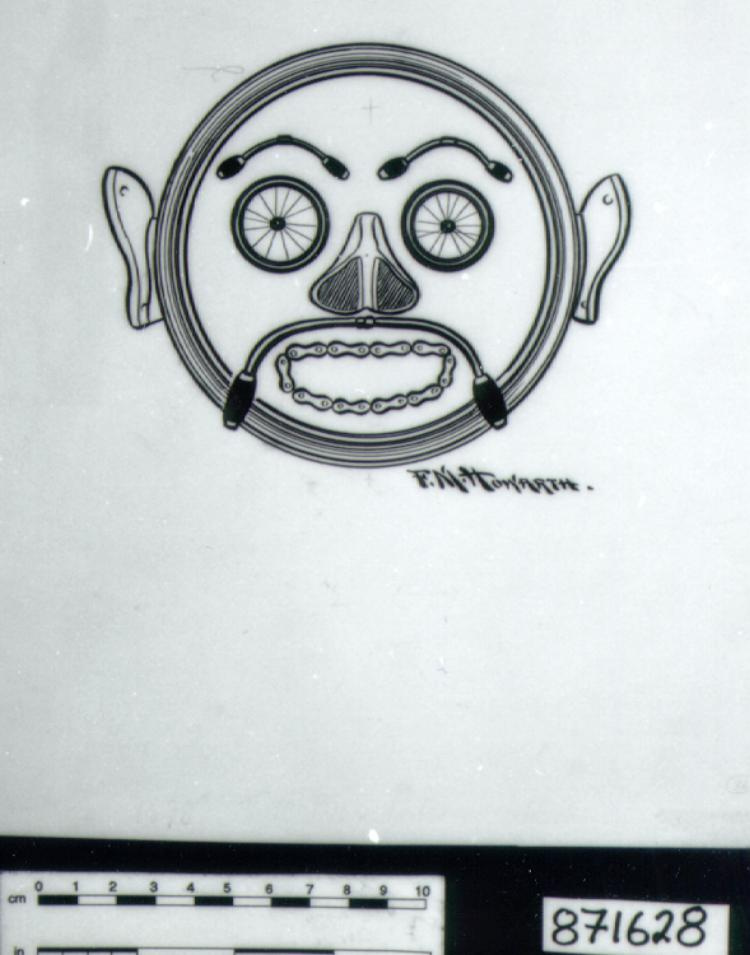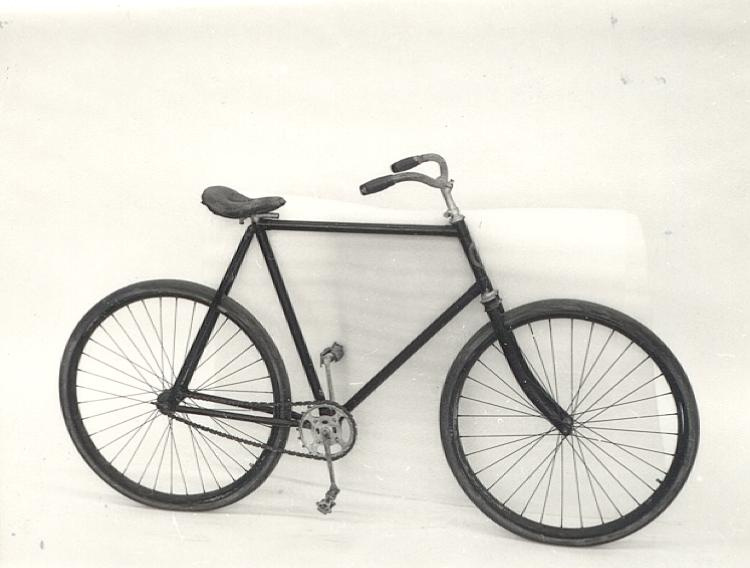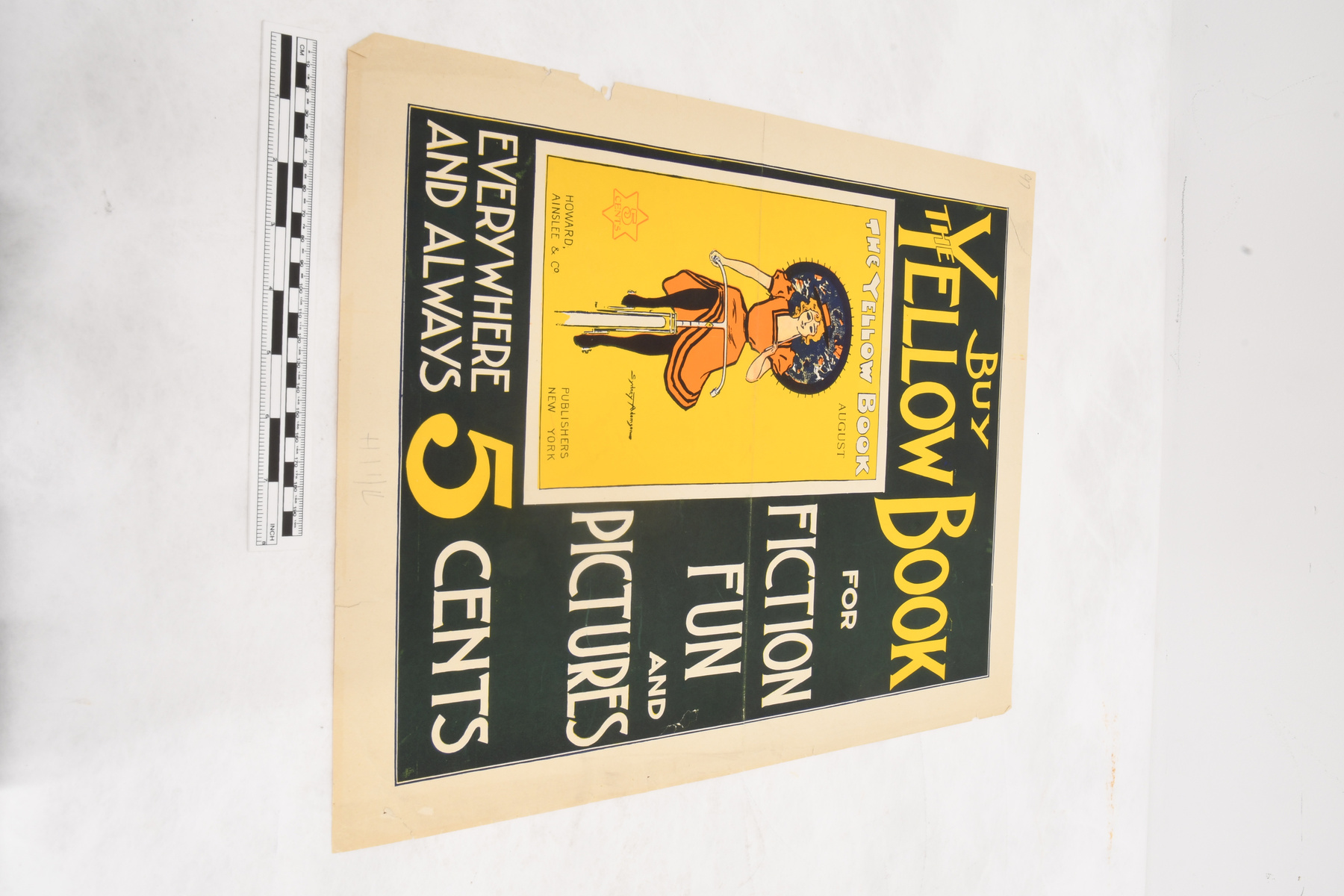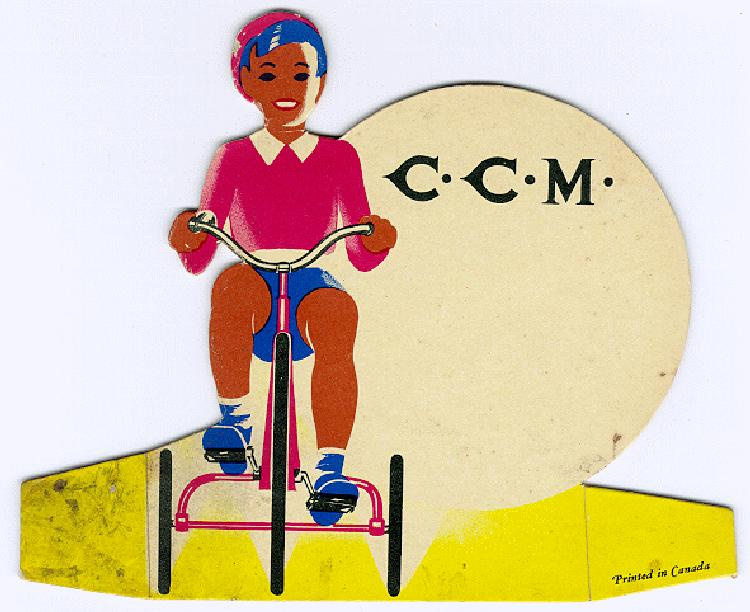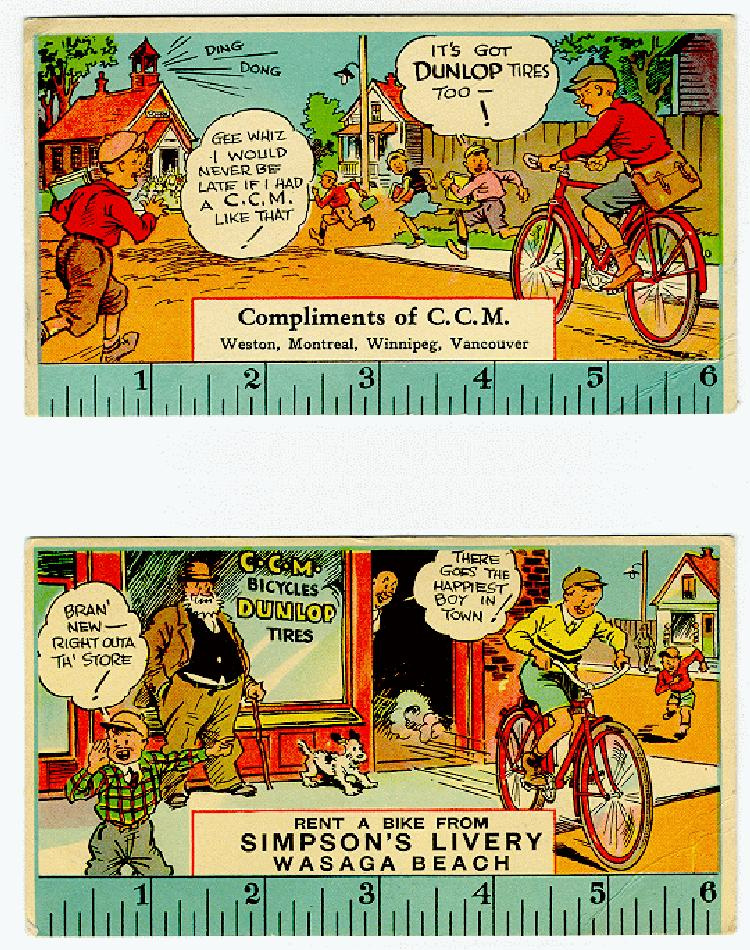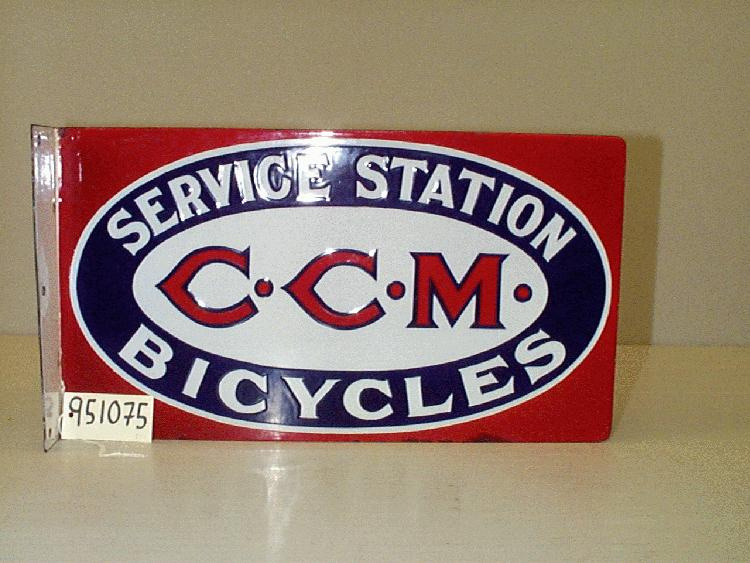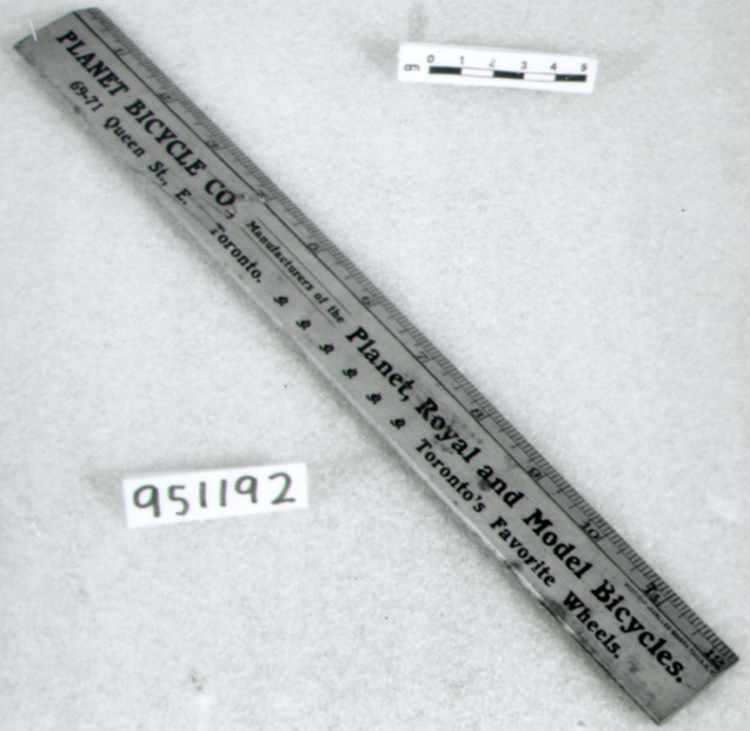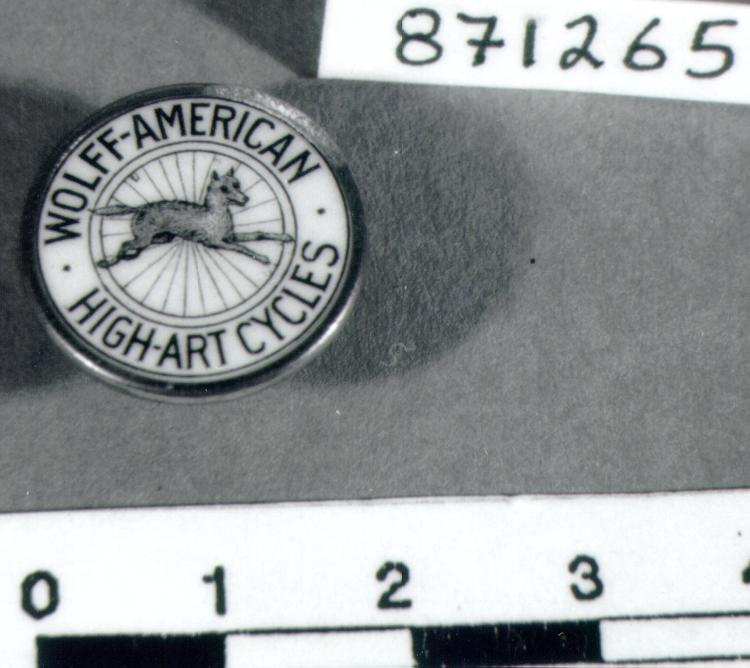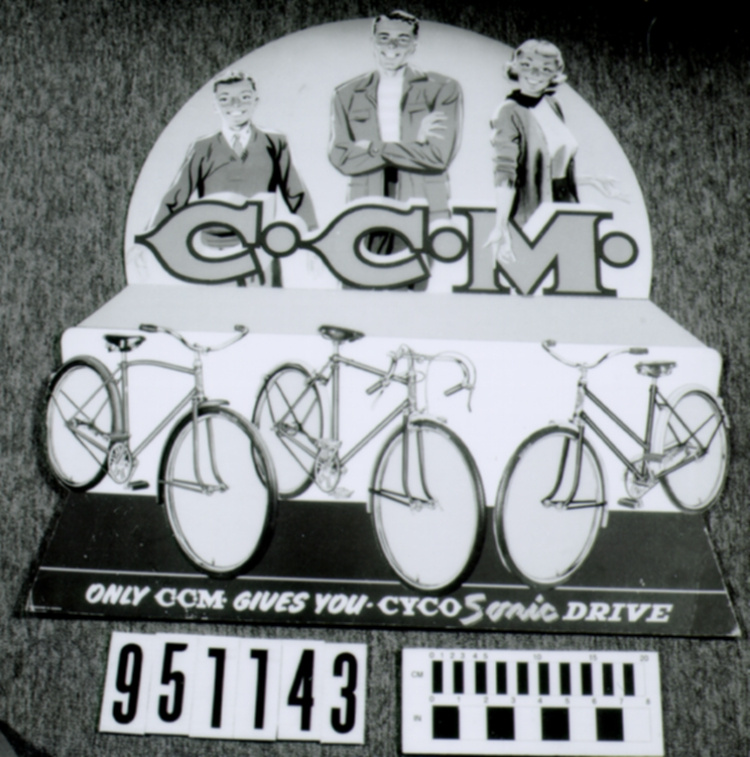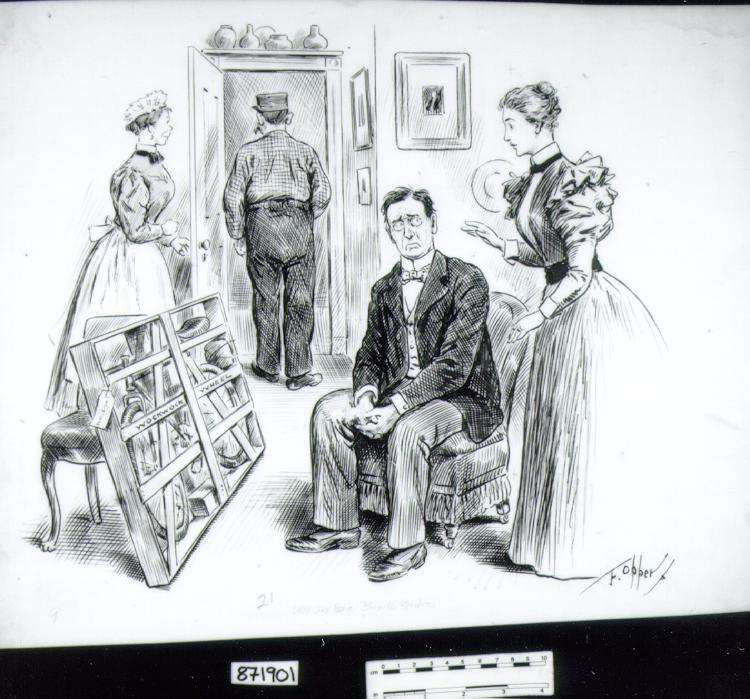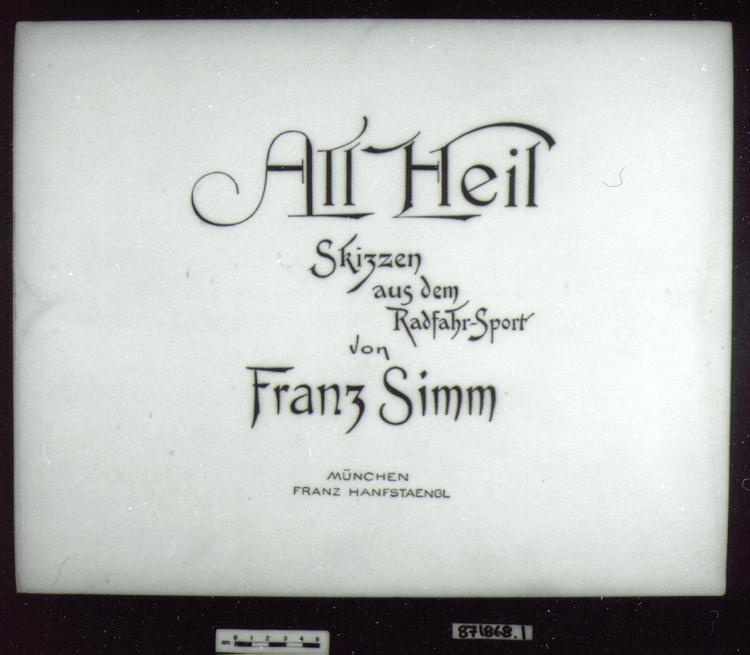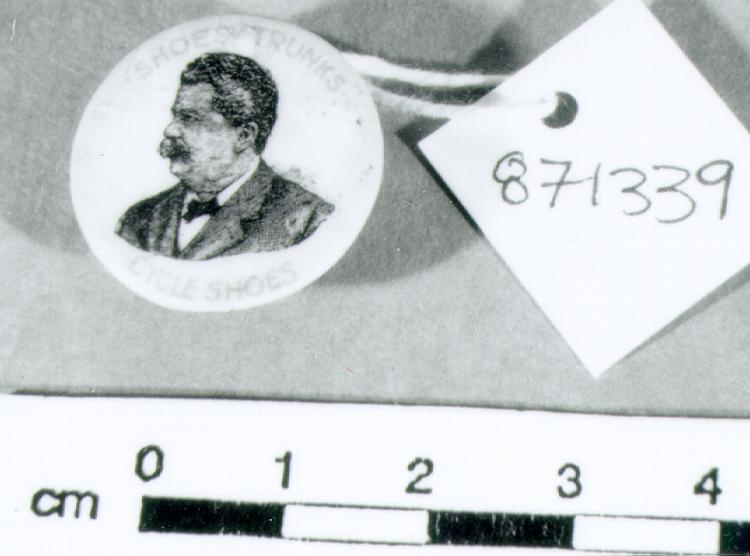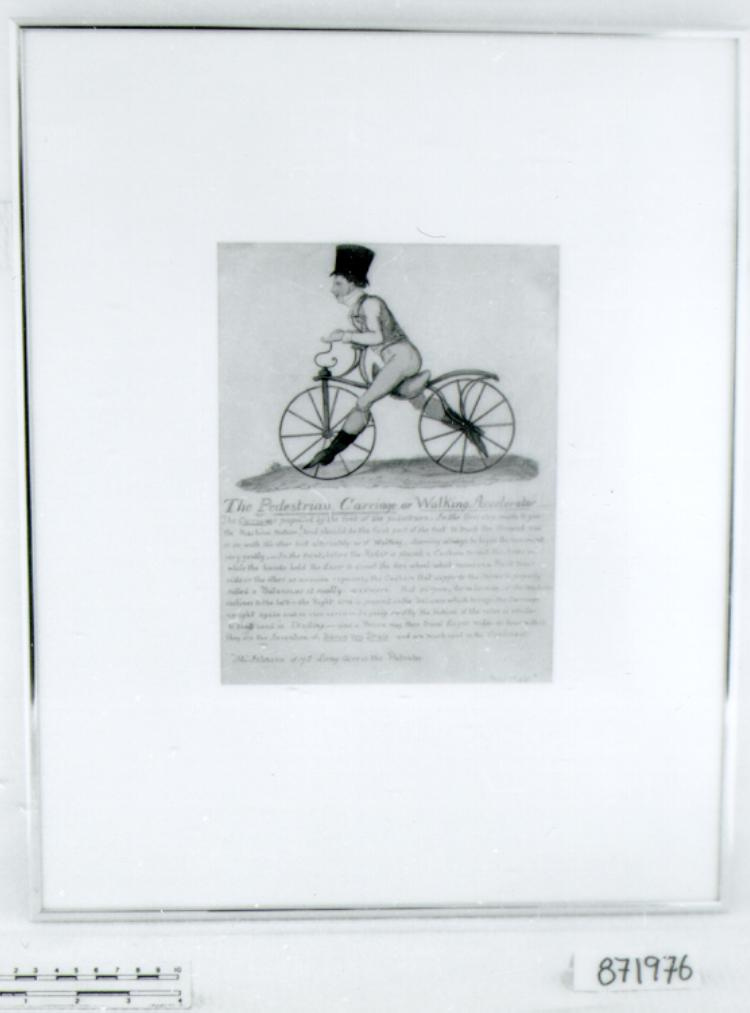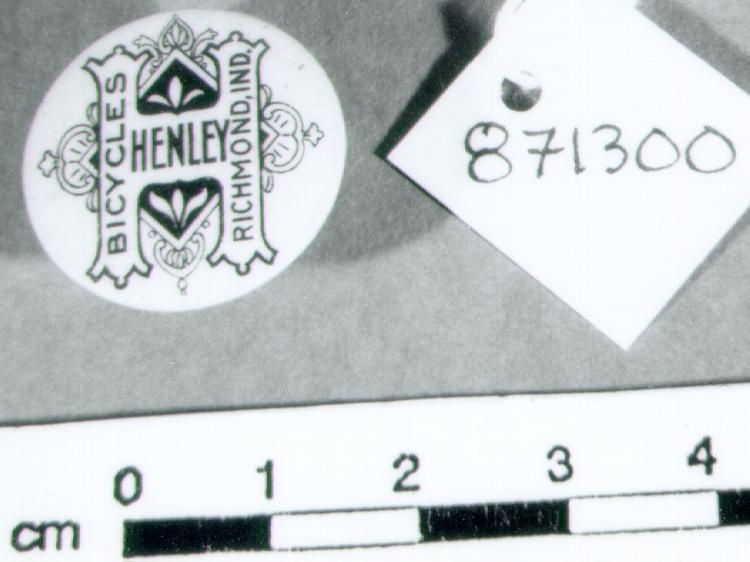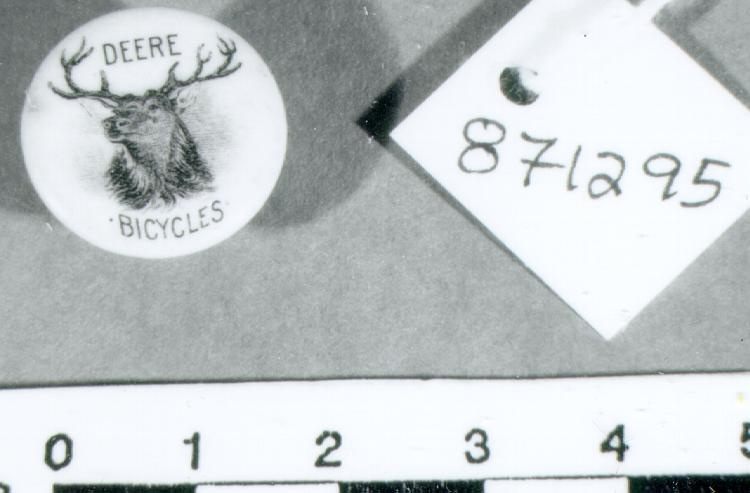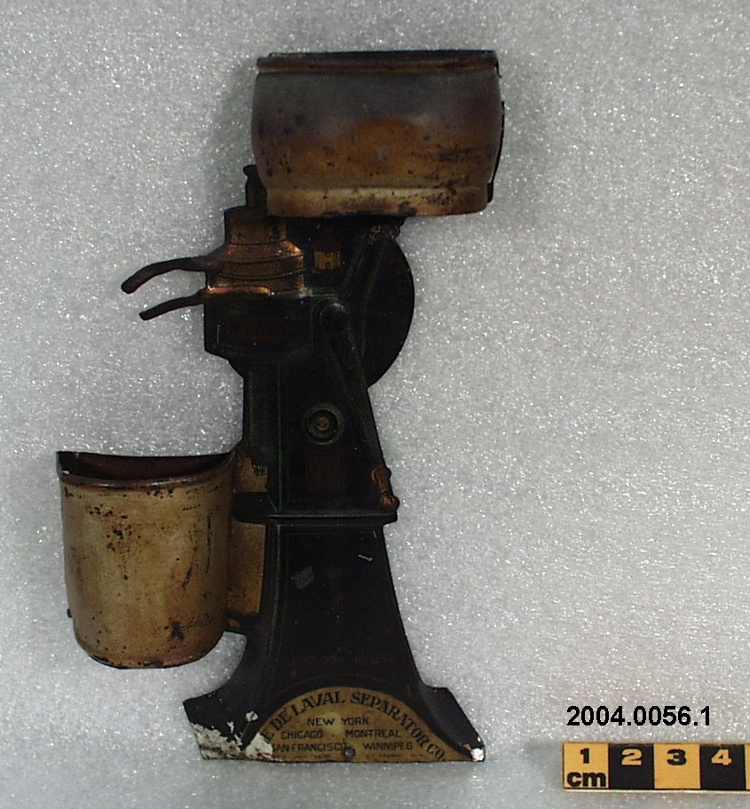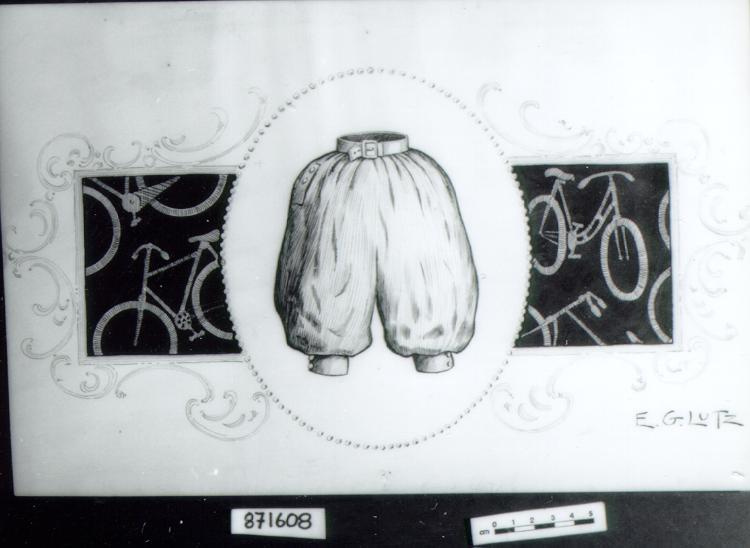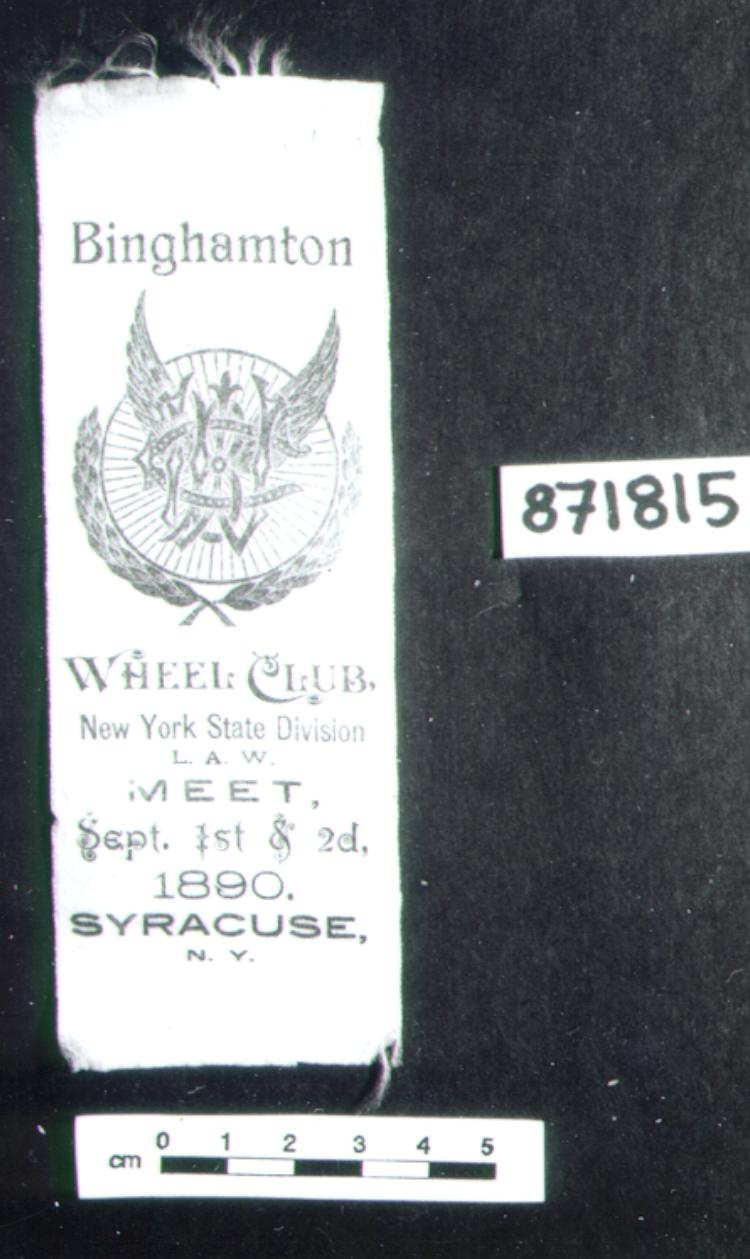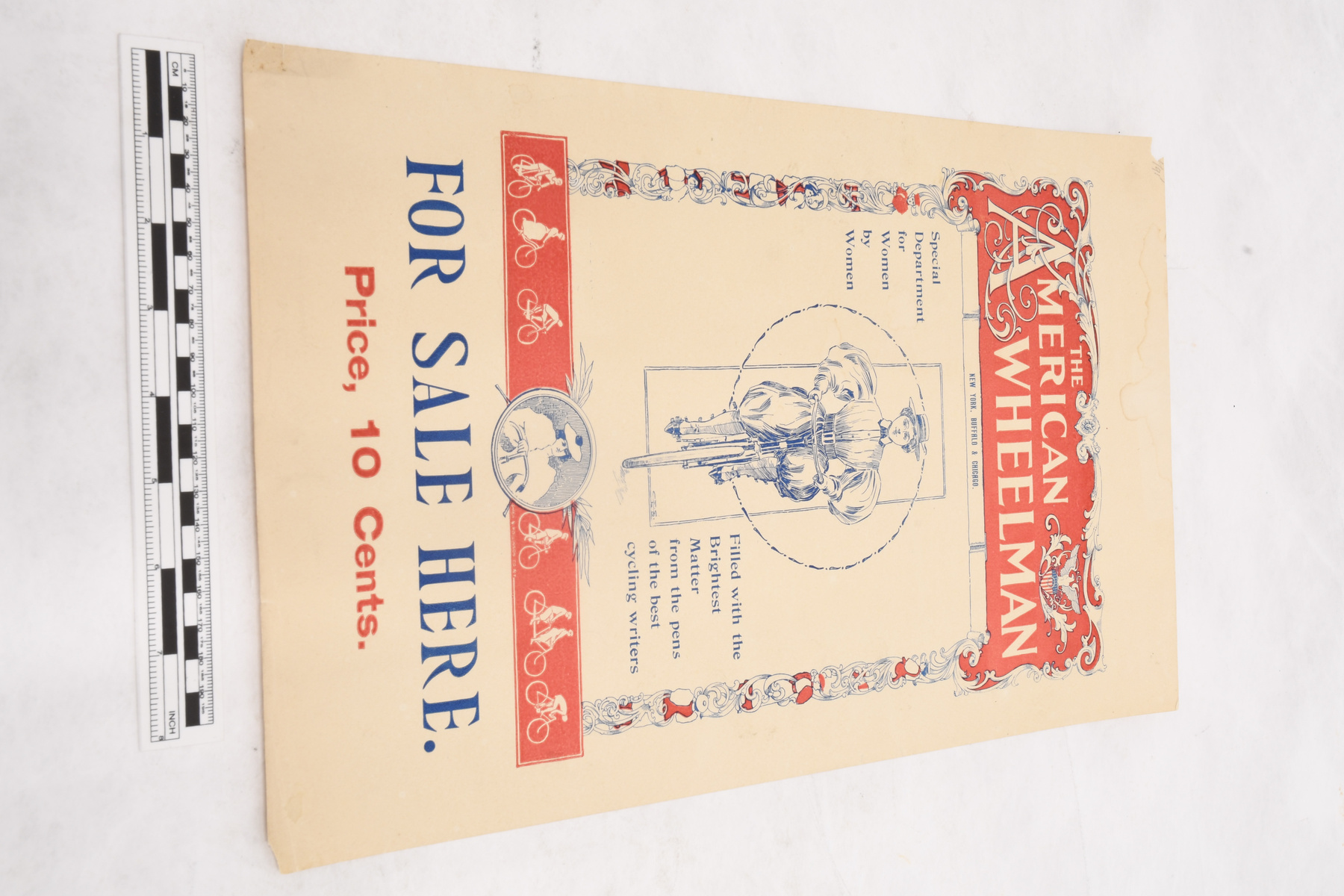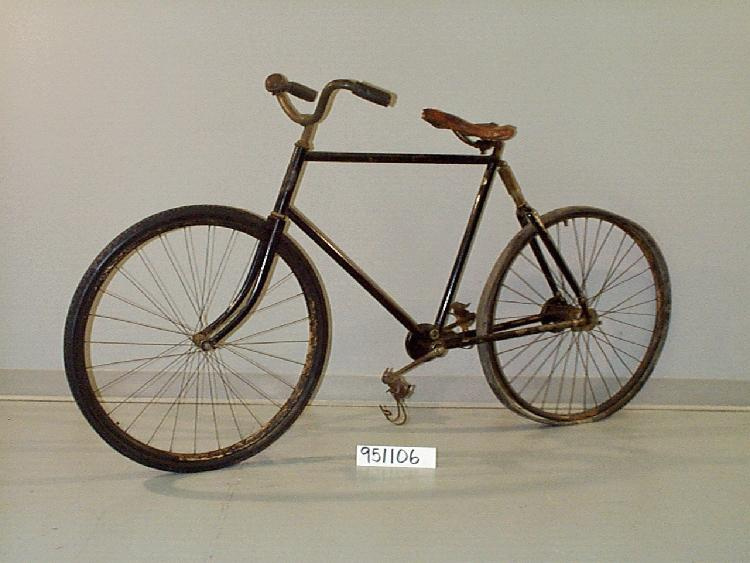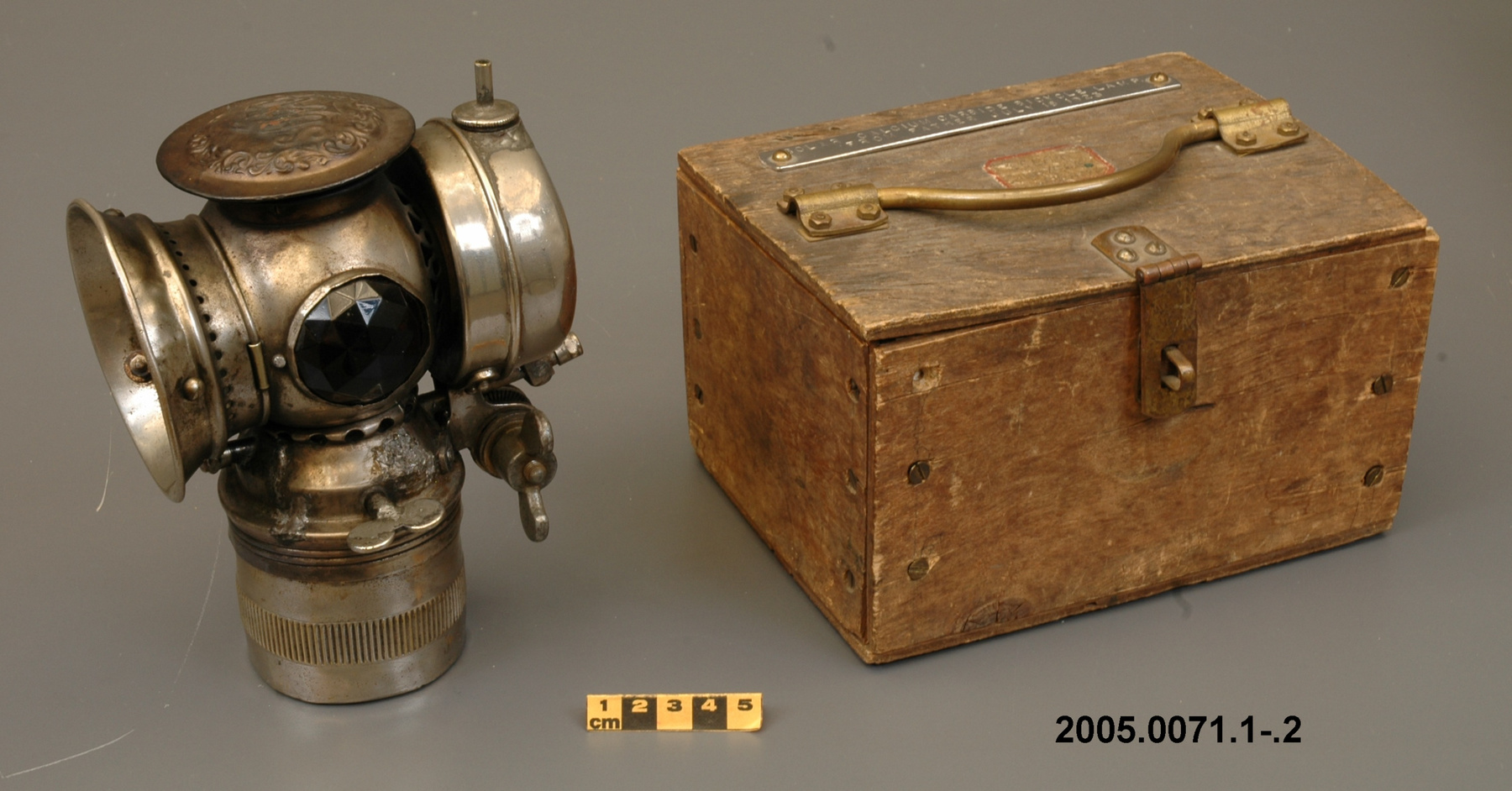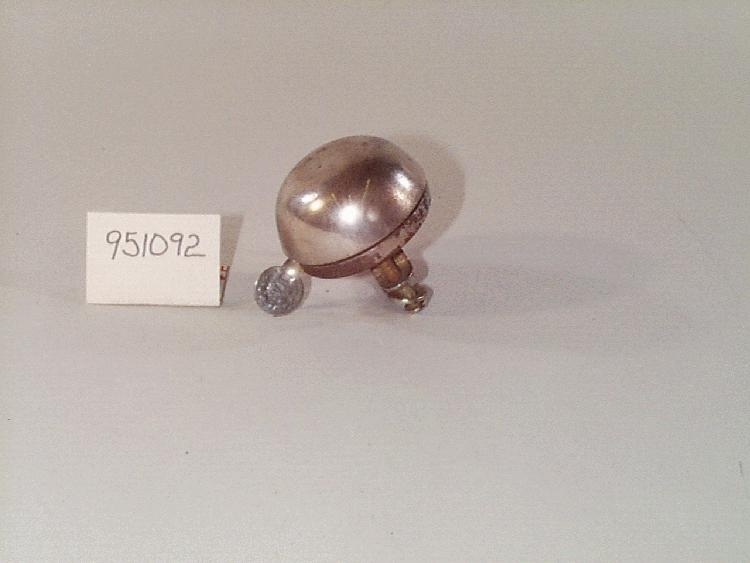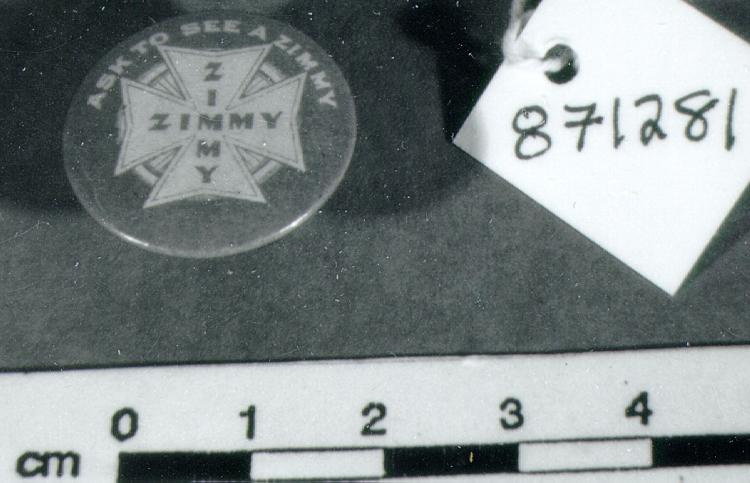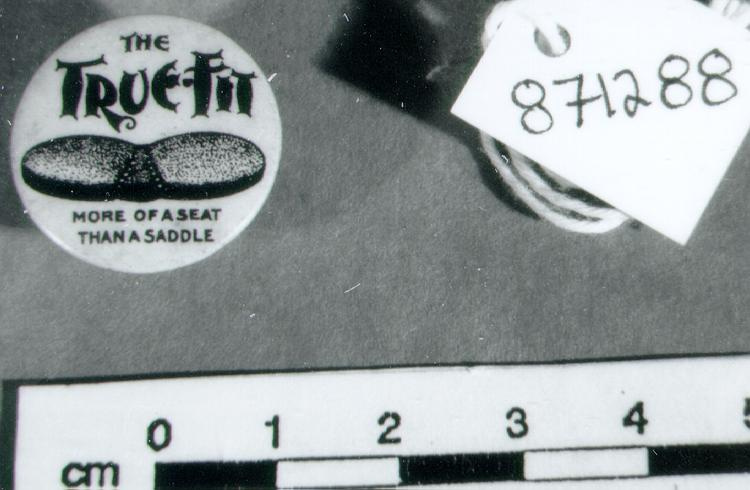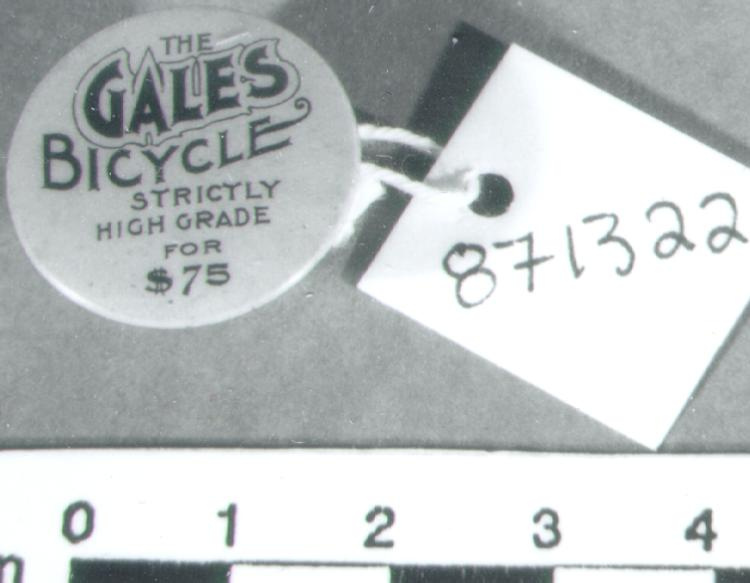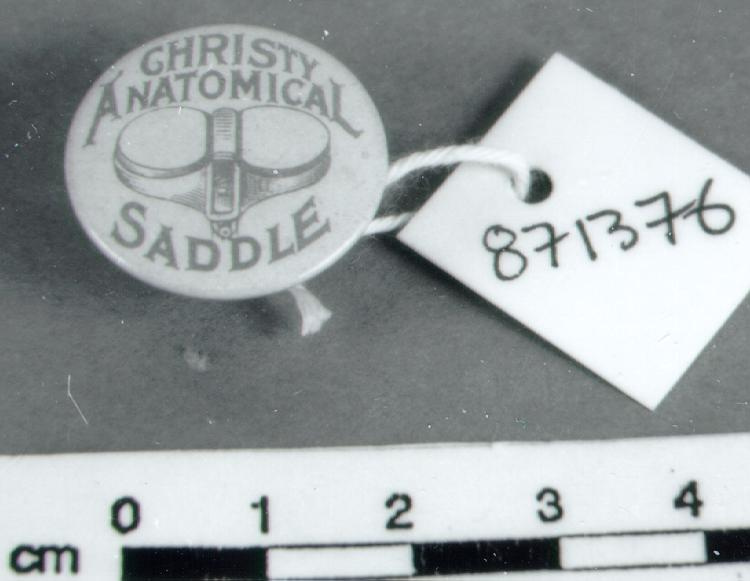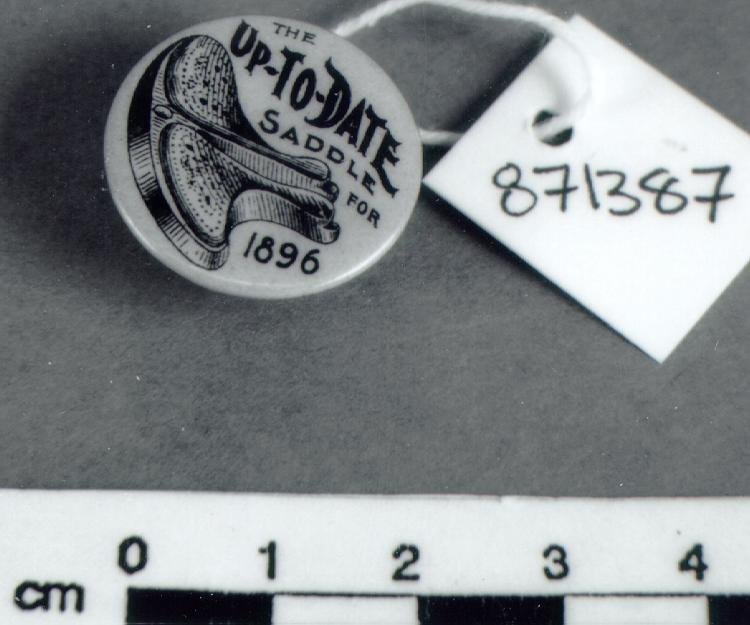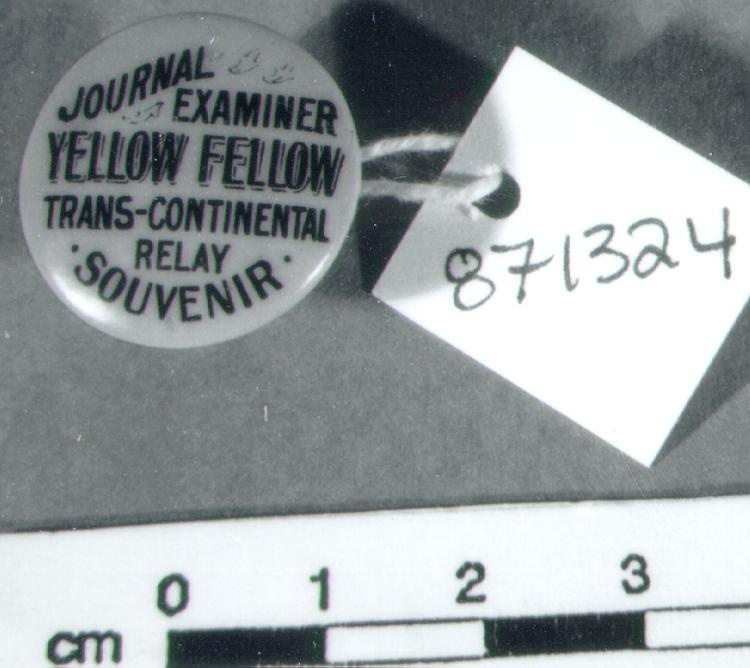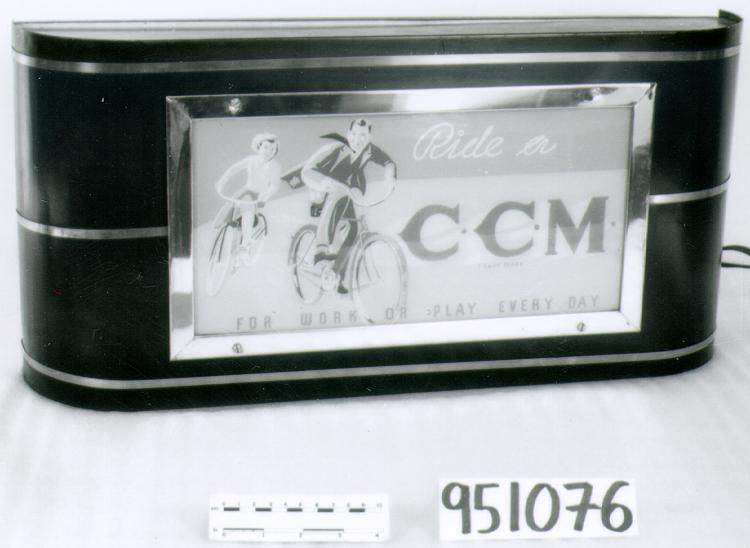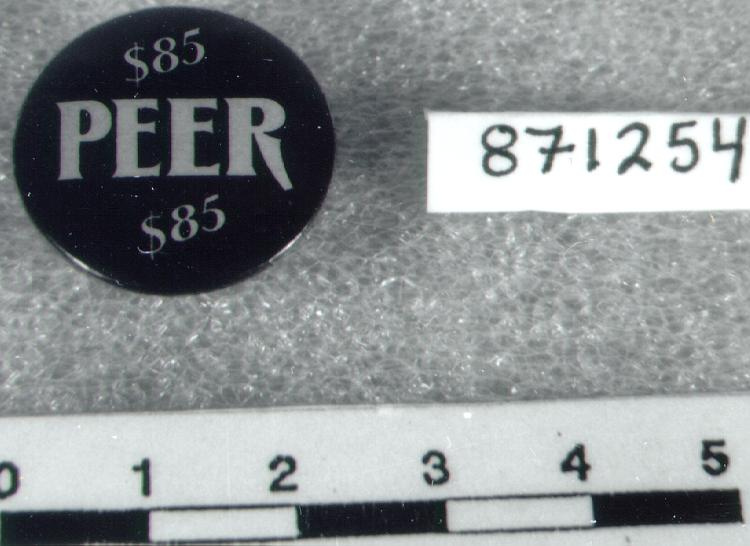Advertisement
Use this image
Can I reuse this image without permission? Yes
Object images on the Ingenium Collection’s portal have the following Creative Commons license:
Copyright Ingenium / CC BY-NC-ND (Attribution-NonCommercial 4.0 International (CC BY-NC 4.0)
ATTRIBUTE THIS IMAGE
Ingenium,
1995.1152.001
Permalink:
Ingenium is releasing this image under the Creative Commons licensing framework, and encourages downloading and reuse for non-commercial purposes. Please acknowledge Ingenium and cite the artifact number.
DOWNLOAD IMAGEPURCHASE THIS IMAGE
This image is free for non-commercial use.
For commercial use, please consult our Reproduction Fees and contact us to purchase the image.
- OBJECT TYPE
- CARD/BICYCLE CLUB-MEET
- DATE
- 1897
- ARTIFACT NUMBER
- 1995.1152.001
- MANUFACTURER
- Unknown
- MODEL
- Yellow Fellow
- LOCATION
- Germany
More Information
General Information
- Serial #
- N/A
- Part Number
- 1
- Total Parts
- 3
- AKA
- N/A
- Patents
- N/A
- General Description
- LIGHT CARDBOARD
Dimensions
Note: These reflect the general size for storage and are not necessarily representative of the object's true dimensions.
- Length
- 16.8 cm
- Width
- 8.5 cm
- Height
- N/A
- Thickness
- N/A
- Weight
- N/A
- Diameter
- N/A
- Volume
- N/A
Lexicon
- Group
- Non-motorized Ground Transportation
- Category
- Cycles & cycling
- Sub-Category
- N/A
Manufacturer
- AKA
- Unknown
- Country
- Germany
- State/Province
- Unknown
- City
- Unknown
Context
- Country
- Unknown
- State/Province
- Unknown
- Period
- 1897
- Canada
-
In 1893, Edward Stearns established the E. C. Stearns Bicycle Agency. The company initially focused on the manufacturing of hardware and eventually branched out into bicycle production. Stearns began manufacturing the ‘Yellow Fellow’ bicycle in 1895, and thousands were made at the Syracuse, NY factory. At one time, the company had four factories in Syracuse, with 3,500 employees, another plant in Toronto, Canada, and one in Germany to supply the European market. They also had a strong export market in Australia and New Zealand. The company was allegedly one of the top three advertisers in the cycle business. Stearns always incorporated the Yellow Fellow model in their advertising. When asked why, the advertising manager, G. H. E. Hawkins indicated that the name was “synonymous with ‘Stearns’ so that whenever one sees a yellow bicycle his mind naturally reverts to Stearns and Yellow Fellow. Our efforts in this direction have been flatteringly successful, and there’s hardly a man, woman and child on the continent knowing the difference between a bicycle and a tricycle, but instinctively recognizing any yellow bicycle as a ‘Stearns’.” Stearns used a variety of formats and designs as part of their advertising campaigns. This artifact is an example of a collaboration between Stearns and cartoonist Richard F. Outcault that incorporated the well-known bicycle (Yellow Fellow) and the comic character, the Yellow Kid. The Yellow Kid was a very popular cartoon in the 1890s. “Set in the tenements of New York’s Lower East Side, the comic chronicled the antics of a group of raucous working-class children. The kids were led by a scrappy young boy whose given name was Mickey Dugan but who quickly became known by the nickname “The Yellow Kid” after the mustard-coloured nightshirt he commonly worse.” (ref. 1). - Function
-
Printed cards serving to advertise product, in this case, a bicycle as well as cycling event. - Technical
-
As Michelle Abate describes in her work on representation, identity, and Outcault’s comics, “in the same way that The Yellow Kid is associated with the commercial origins of comics in the United States, he is also associated with a specific demographic: working-class Irish immigrants. From his name “Mickey Dugan” to his residence in New York’s Lower East Side, Outcault’s protagonist “was meant to serve as an ethnic marker to identify the comic figure as an Irish immigrant child living in New York City” (ref. 2). Far from an association that was externally imposed, it was also one that was internally supported. Together with having a common Irish surname, the first name of Outcault’s central character was a well-known derogatory term for individuals from Ireland. Lest any doubts remain about The Yellow Kid’s heritage, when the character and his pals stop in Ireland during their around-the-world tour, he refers to the country as “de land of me 4 fadders.” Given this situation, Outcault’s work featuring The Yellow Kid has been viewed in both past and present criticism as “offer[ing] historical insight into how Irish immigrants and their children were viewed and accepted by middle-class Americans just prior to the turn of the twentieth century” (ref. 3). (ref. 1) Abate continues, that “While The Yellow’s Kid’s ethnic identity is now seen as Irish, the cartoonist’s original audience perceived him differently—or, at least, in a less culturally homogenous way. An article that appeared in 1897, for example, described the comics character as a “Chinese-Irishman” (qtd in Meyer 84). (…) Far from an unusual or even unfounded assertion, this viewpoint was understandable. Both to audiences in the 1890s and to those examining Outcault’s work today, Mickey Dugan possesses a variety of physical features that echo common caricatures of Asians in general and the Chinese in particular. (…) Even the color that Outcault selected for his protagonist’s signature nightshirt can be viewed through this lens. (…) When these features are taken collectively, Outcault’s The Yellow Kid evokes a subject that occupied the national imagination along with its print media during the closing decades of the nineteenth century: The Yellow Peril.” (ref. 1) - Area Notes
-
Unknown
Details
- Markings
- .1-.2 GOLD STAMPED "10TH ANNUAL C.W.A. MEET,/ CHATHAM, JULY 1ST, 1897./ "Yellow Fellow Souvenir."/ E.C. STEARNS CO./ TORONTO" ON BACK; BLACK LETTERING READING"Manufactured in Germany/ by permission and under/ a copyright of/ R.F. OUTGAULT, New York, 1896."/ BLACK LETTERING ON FRONT READS.1 "THE YELLOW/ KID/ HUSTLER FOR/ E.C. STEARNS CO./ TORONTO" & "De swellest/ way/ to make money/ I've seen/ Is to ride a/ Yellow Fellow/ and cop/ de/ "long/ green"";.2 "You should/ see me and Liz/ on de/ Yellow Fellow tandem
- Missing
- COMPLETE
- Finish
- PRIMARILY YELLOW & PINK, WITH RE, BLACK, GREEN, WHITE, BEIGE
- Decoration
- N/A
CITE THIS OBJECT
If you choose to share our information about this collection object, please cite:
Unknown Manufacturer, Advertisement, 1897, Artifact no. 1995.1152, Ingenium – Canada’s Museums of Science and Innovation, http://collection.ingeniumcanada.org/en/item/1995.1152.001/
FEEDBACK
Submit a question or comment about this artifact.
More Like This
